Business & Management
25 awarded certificates after PIM training
Published
2 years agoon
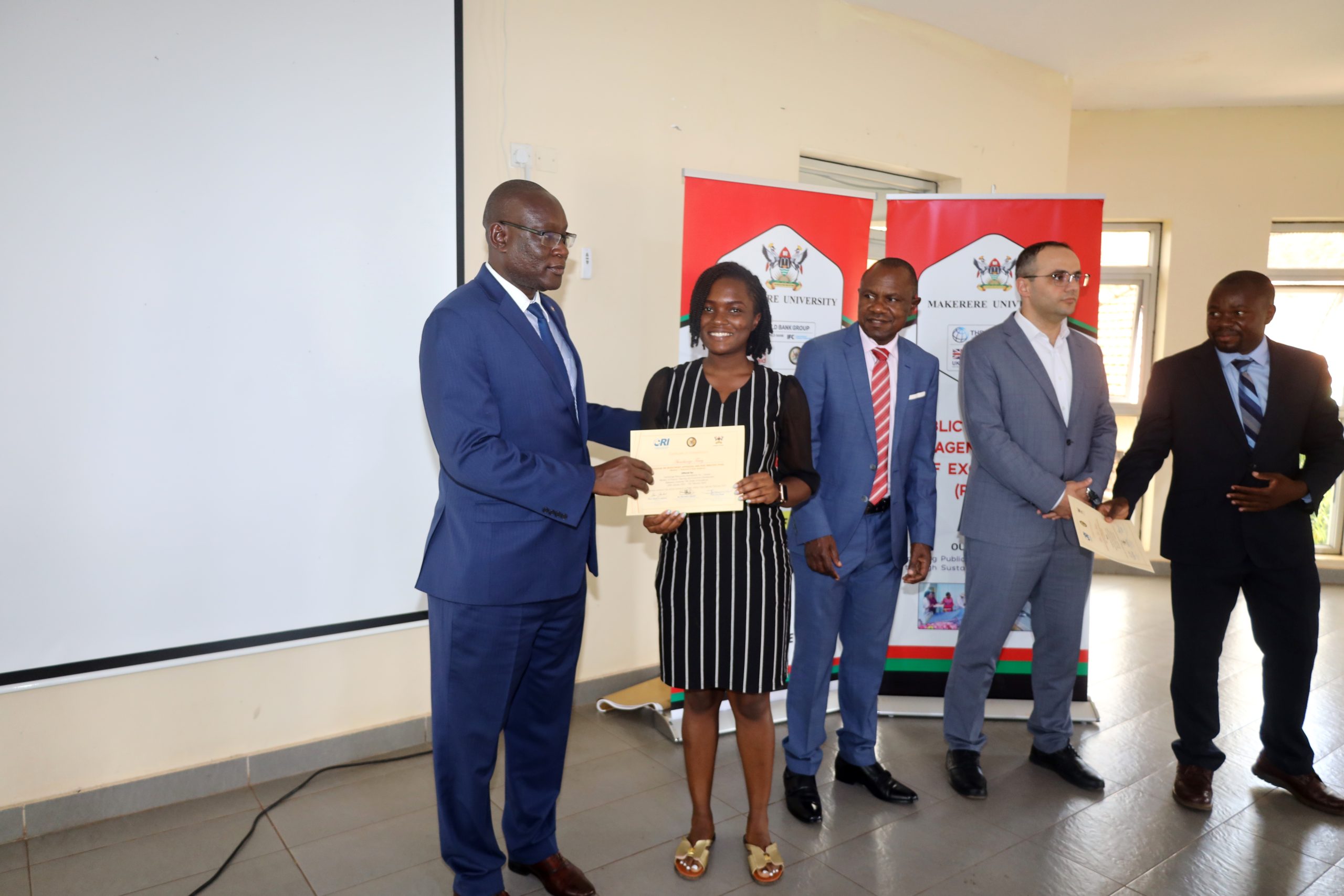
Over 25 public officers from various Ministries, Department and Agencies were on February 10, 2023 awarded certificates after completing a two-week training in Public Investment Management (PIM). The trainees have been undertaking a course on Investment Appraisal and Risk Analysis. The training was conducted by the Public Investment Management Centre of Excellence at the College of Business and Management Sciences. The trainers are drawn from Makerere University, Ministry of Finance, Planning and Economic Development and Cambridge Resources Institute at the University of Queens. Speaking at the handover ceremony, the Manager of the centre, Dr. Willy Kagarura said the training equips individuals with the tools to be able to make important decisions relating to the viability of government projects. The course which is divided into two modules covers financial analysis, risk analysis, stakeholder analysis and economic analysis. Dr. Kagarura reminded the trainees that the government expects that they will better prepare and supervise projects after this training.
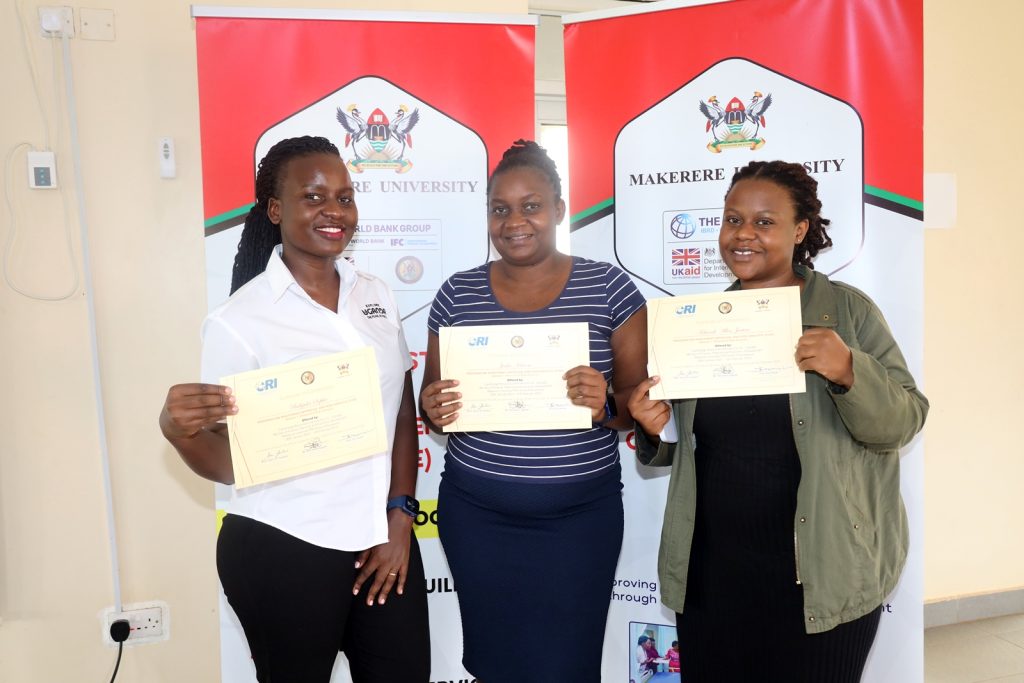
Commissioner Ashaba Hannington, who represented the permanent Secretary of MoFPED, said the ministry had decided to establish the PIM centre excellence is an effort to establish sustainability and reduce the cost of training of government officials. Previously, officers trained at Queens University, a thing that he ministry found expensive to sustain. “I call on you to take and share the knowledge you have gained with other people in your agencies,” Mr Ashaba said.
He pledged government support to the centre to enable it train more public officers.
The Principal of CoBAMS, Prof. Eria Hisali, said the university is equipping participants with knowledge and skills to be able to offer interventions and in-depth analysis of projects. “The best way to appreciate the tax payers is by preparing viable projects,” Prof. Hisali cautioned.
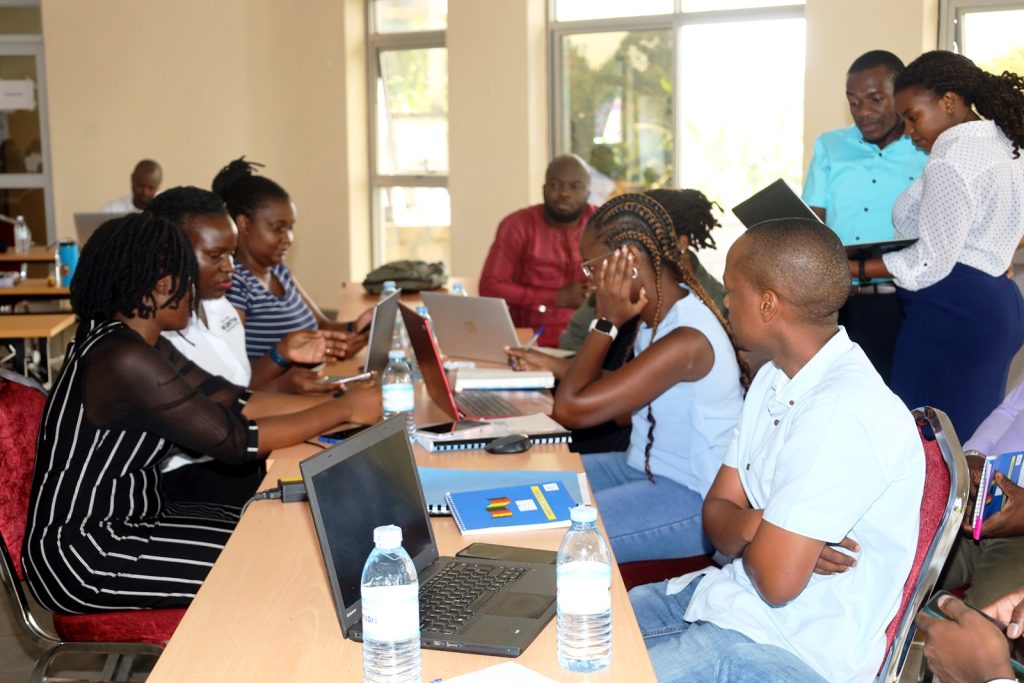
One of the students, Mr Kenneth Otikal from Diary Development Authority thanked the facilitators for a job well done in passing on knowledge during the last two weeks. “We have learnt a lot from you. We can now apply financial management in our work as well as our lives,” Mr Otikal said. He thanked MoFPED for spearheading the training and Makerere University for offering the training. The Dean of the School of Economics, Prof. Ibrahim Okumu, who was also one of the trainers congratulated the trainee upon the successful completion of the course.
You may like
-
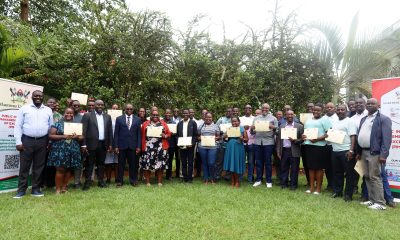

Makerere’s PIM Centre Concludes Training on Certificate of Financial Implications (CFI)
-
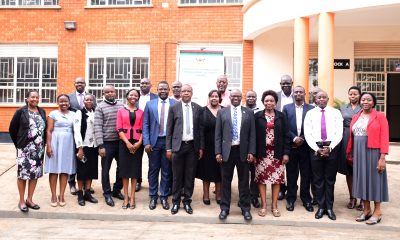

School of Business Conducts Strategic Leadership Training for Makerere University Managers
-
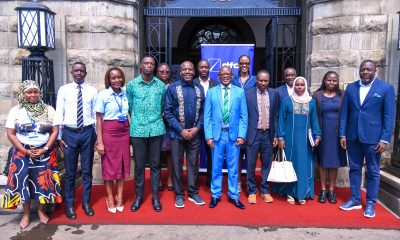

Makerere University, DFCU Bank Sign MoU to Advance Innovation, Student Leadership and Research
-
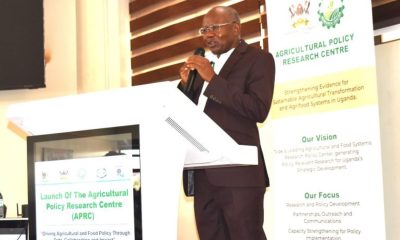

APRC Trains Graduate Students & Stakeholders in the Use of the African Agriculture Adaptation Atlas
-
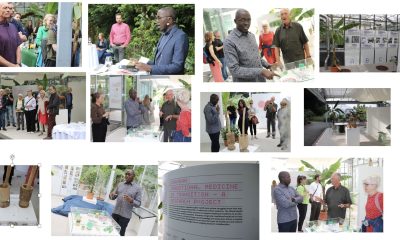

CARTA Early Career Researchers in Action
-
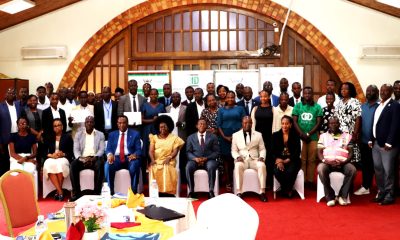

Swedish Ambassador Calls on Uganda to Lead Africa’s E-Mobility Revolution
Business & Management
Makerere’s PIM Centre Concludes Training on Certificate of Financial Implications (CFI)
Published
2 days agoon
July 12, 2025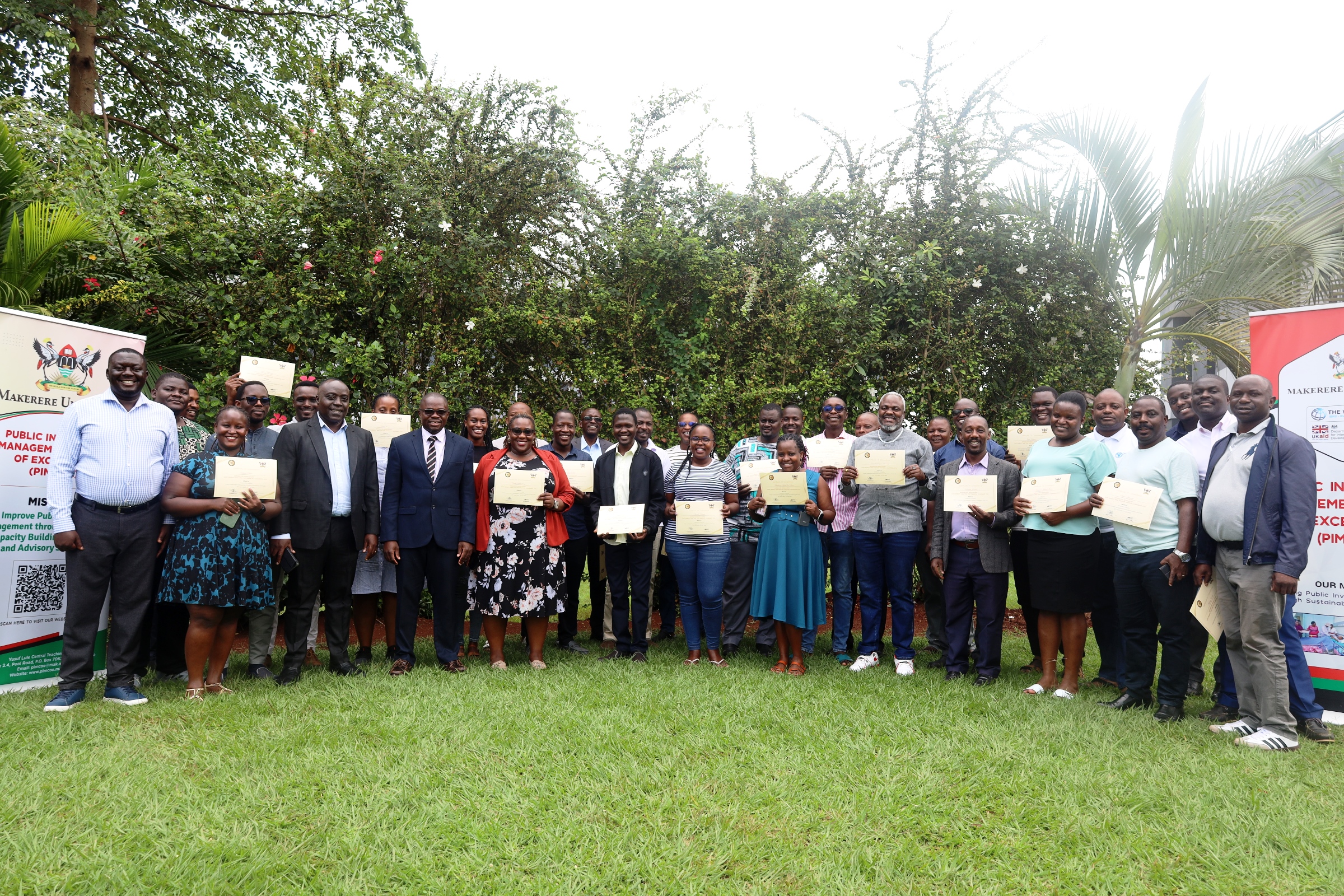
July 11, 2025 | Jinja, Uganda
The Public Investment Management (PIM) Centre of Excellence at Makerere University successfully concluded a two-week training on the Certificate of Financial Implications (CFI) – Integrated Regulatory Cost-Benefit Analysis, equipping 34 economists from various Ministries, Departments, and Agencies (MDAs) with critical policy evaluation and fiscal analysis skills.
The closing ceremony, held at the Pearl on the Nile Hotel in Jinja on July 11, 2025, marked a significant milestone in Uganda’s public finance management reform agenda. Participants received certificates in recognition of their commitment and newly acquired competencies under the revised Guidelines for Financial Clearance, which took effect on July 1, 2025.
Commissioner Paul Mwanja, who represented the Permanent Secretary and Secretary to the Treasury, officiated the ceremony. In his remarks, he commended participants for their dedication despite the demanding timing, coinciding with the financial year-end and the launch of the Fourth National Development Plan (NDP IV). He emphasized that the training comes at a critical moment as Uganda enters a growth-focused fiscal year and prepares for the 2026 general elections.
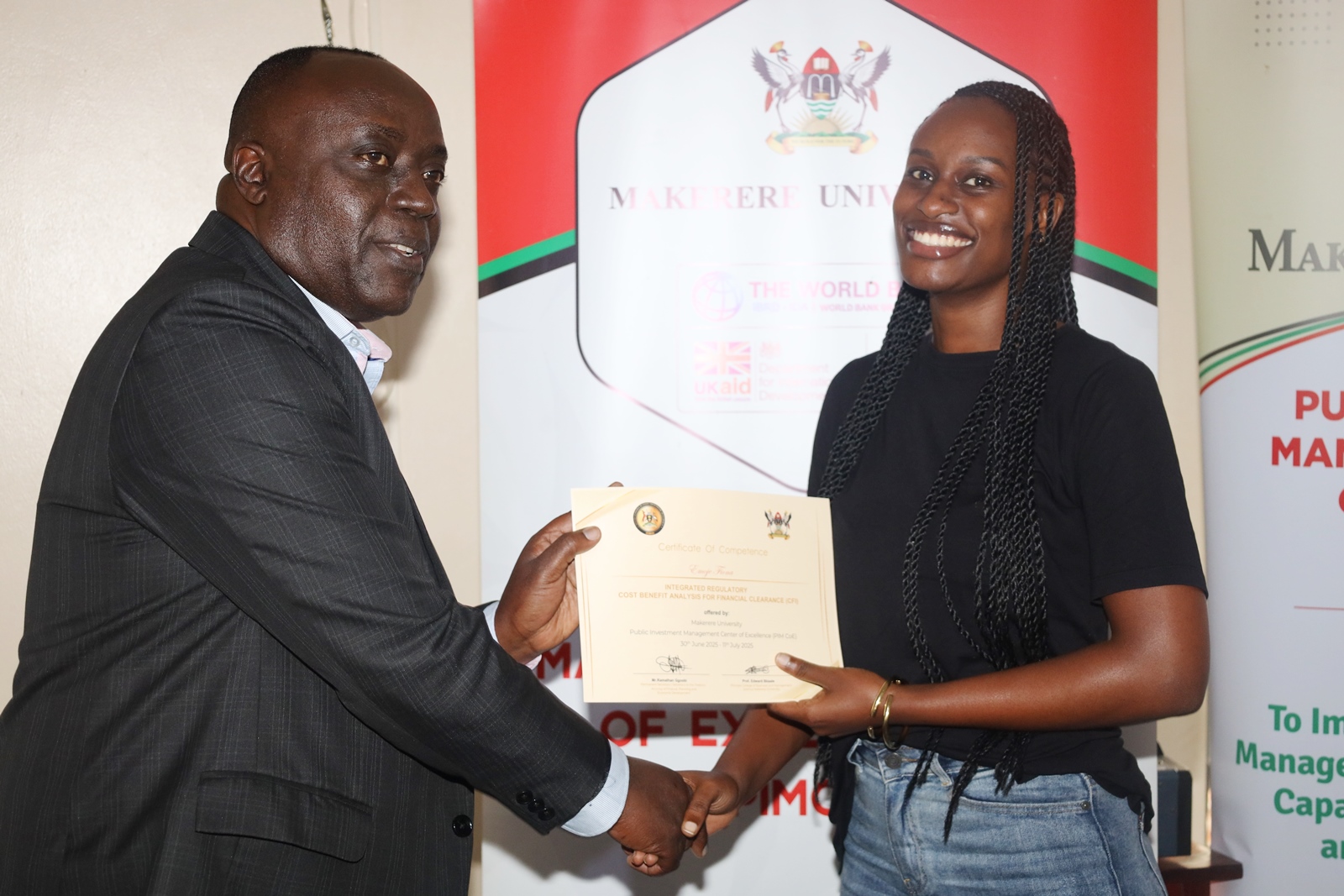
“The Revised Guidelines for Financial Clearance mark a paradigm shift towards a more data-driven, transparent, and inclusive approach to policy and legislative evaluation,” Mwanja stated. “You are the first wave of reformers. Go back as champions, create demand for quality analysis, and drive the change we want to see.”
The CFI training was designed to deepen participants’ ability to assess the financial and economic implications of government proposals, identify potential winners and losers, and design safeguards for vulnerable groups. It also aims to strengthen MDAs’ capacity to prepare their own Statements of Financial Implications and align with Regulatory Impact Assessments.
Representing the PIM Centre, Prof. Ibrahim Mike Okumu, Dean of the School of Economics at Makerere University, lauded the Ministry of Finance, Planning and Economic Development (MoFPED) for its foresight in establishing the Centre in 2023. He described the training as a powerful response to Uganda’s triple policy challenge: scale, scarcity, and speed.

“This certificate program doesn’t just teach you to ask if a project is beneficial,” Prof. Okumu said. “It trains you to assess whether it is beneficial, affordable, and resilient in real-world fiscal contexts. That is how we build trust in public spending and deliver smarter infrastructure, services, and jobs.”
Prof. Okumu also charged graduates to apply their skills at project, portfolio, and policy levels—prioritizing value for money, institutionalizing evidence-based decision-making, and mentoring future cohorts. “Go forth and make every shilling count,” he concluded.
The Ministry announced that the next CFI training cohort will commence in August 2025, as part of a nationwide rollout to ensure all government institutions are staffed with analysts capable of implementing these reforms. The long-term goal is to establish a government-wide foundation of professionals committed to fiscal discipline, data integrity, and evidence-based policymaking.
The event closed with optimism and a renewed commitment to strengthening Uganda’s public finance systems through knowledge, rigor, and reform-minded leadership.
Business & Management
School of Business Conducts Strategic Leadership Training for Makerere University Managers
Published
6 days agoon
July 8, 2025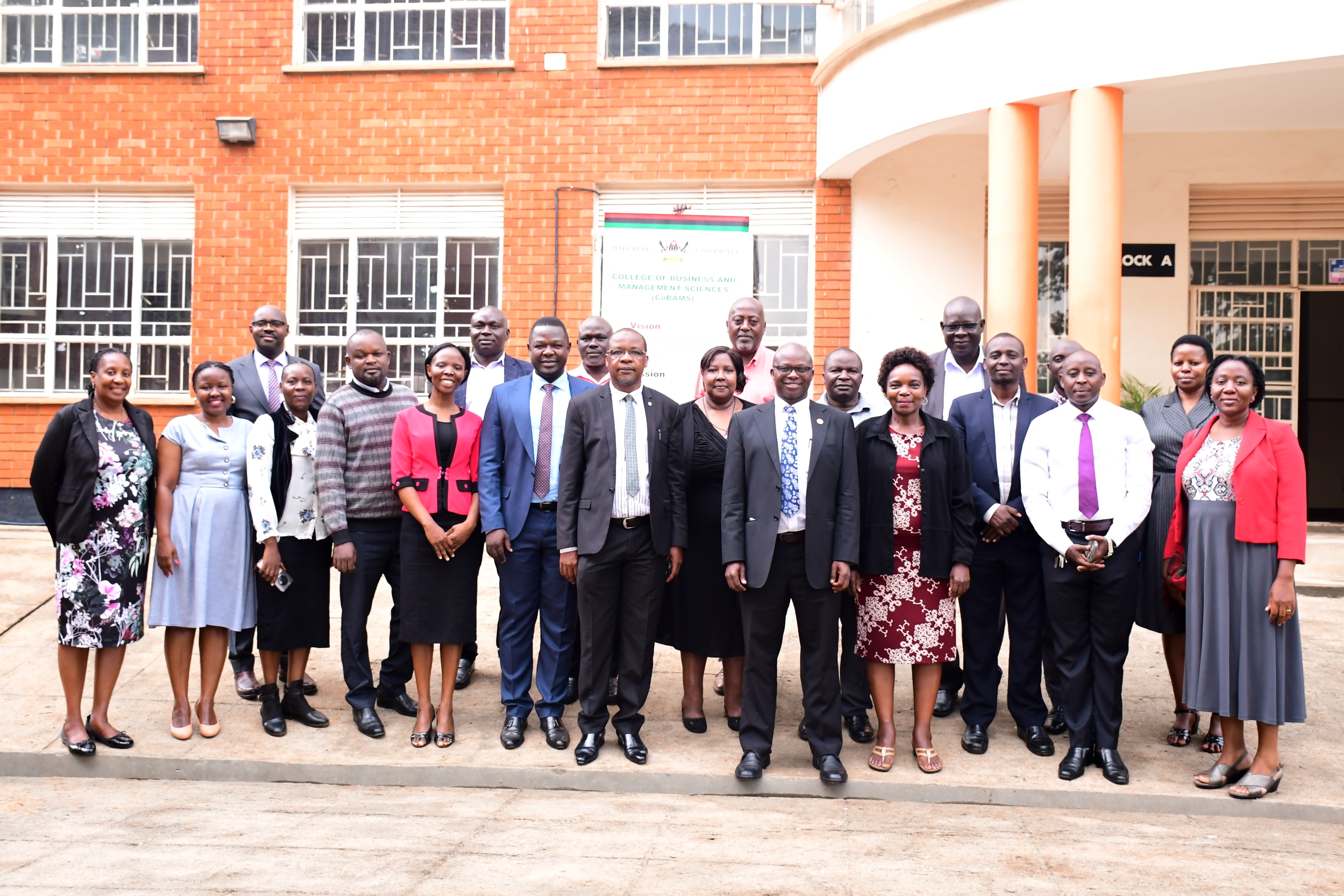
Makerere University School of Business under the College of Business and Management Sciences (CoBAMS) is conducting a five-day strategic leadership training for the first cohort of University managers.
The Executive training (7th to 11th July 2025) for middle and top level managers seeks to foster leadership capacity in line with the University’s strategic goals. The participants nominated from the different units within the University include: Deputy Principals, Deans, Heads of Departments, and Heads of sections in Administrative Units.
The Strategic Leadership course covers critical areas such as Strategic leadership overview and contemporary issues, Driving strategic leadership to promote organizational performance and success, Leading people in Organizations, Organizational culture and productivity, Strategic Communication, and Organizational change and development.
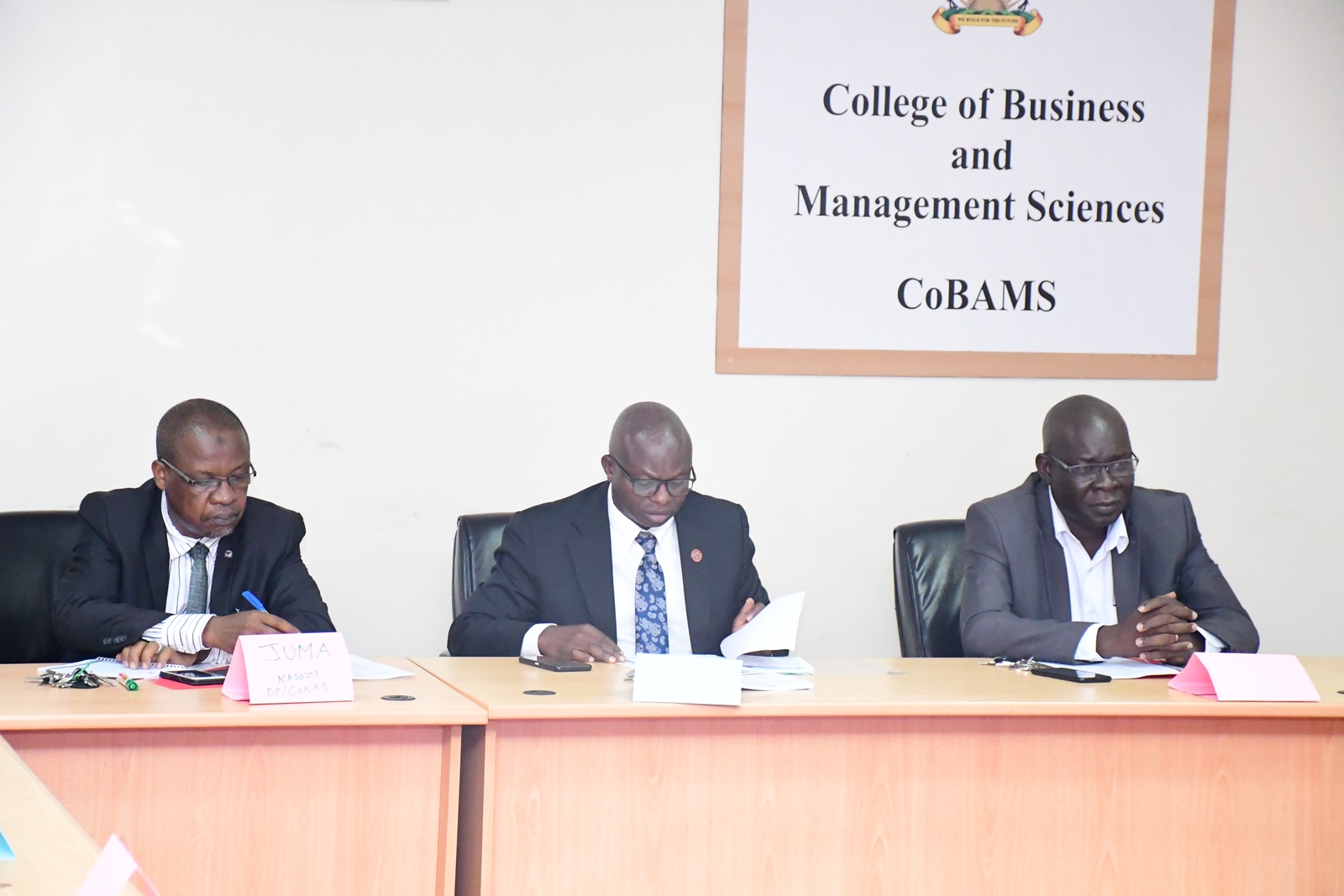
The course is delivered by seasoned facilitators from the School of Business, the private sector, industry and business community namely Associate Prof. James Wokadala, Associate Prof. Godfrey Akileng, Dr. Martin Bakundana, Dr. Sam Eyamu, Dr. S.B. Wanyama, Ms. Irene Nayera, Mr. Henry Rugamba, and Mr. Ronald Bbosa.
Addressing the participants, the Dean-School of Business, Associate Prof. Godfrey Akileng pointed out that learning was a continuous process, stating that the training was aimed at fostering professional leadership development and lifelong learning.
He elaborated that the training brings on board university leaders who are entrusted with managing people. Emphasizing that people are the most important resource in an organization/institution, the Dean highlighted the need to train and equip those managing offices, with strategic leadership knowledge, skills and values.
Unpacking the concepts of leadership and management, Associate Prof. Akileng revealed that most organizations need leaders, and not managers. In light of this, he stated that most business schools in the world were emphasizing leadership more than management. He explained the paradigm shift from traditional management practices to leadership-focused training, with a special call to leaders to always adapt and navigate complex organizational environments.
The Principal of the College of Business and Management Sciences, Prof. Edward Bbaale, represented by the Deputy Principal-Associate Prof. James Wokadala underscored the College’s pivotal role as a hub of excellence in Business, Economics, and Management. The Principal highlighted the growing significance of strategic leadership in today’s academic and professional landscapes, noting that even seasoned leaders must continue evolving in their leadership practices.
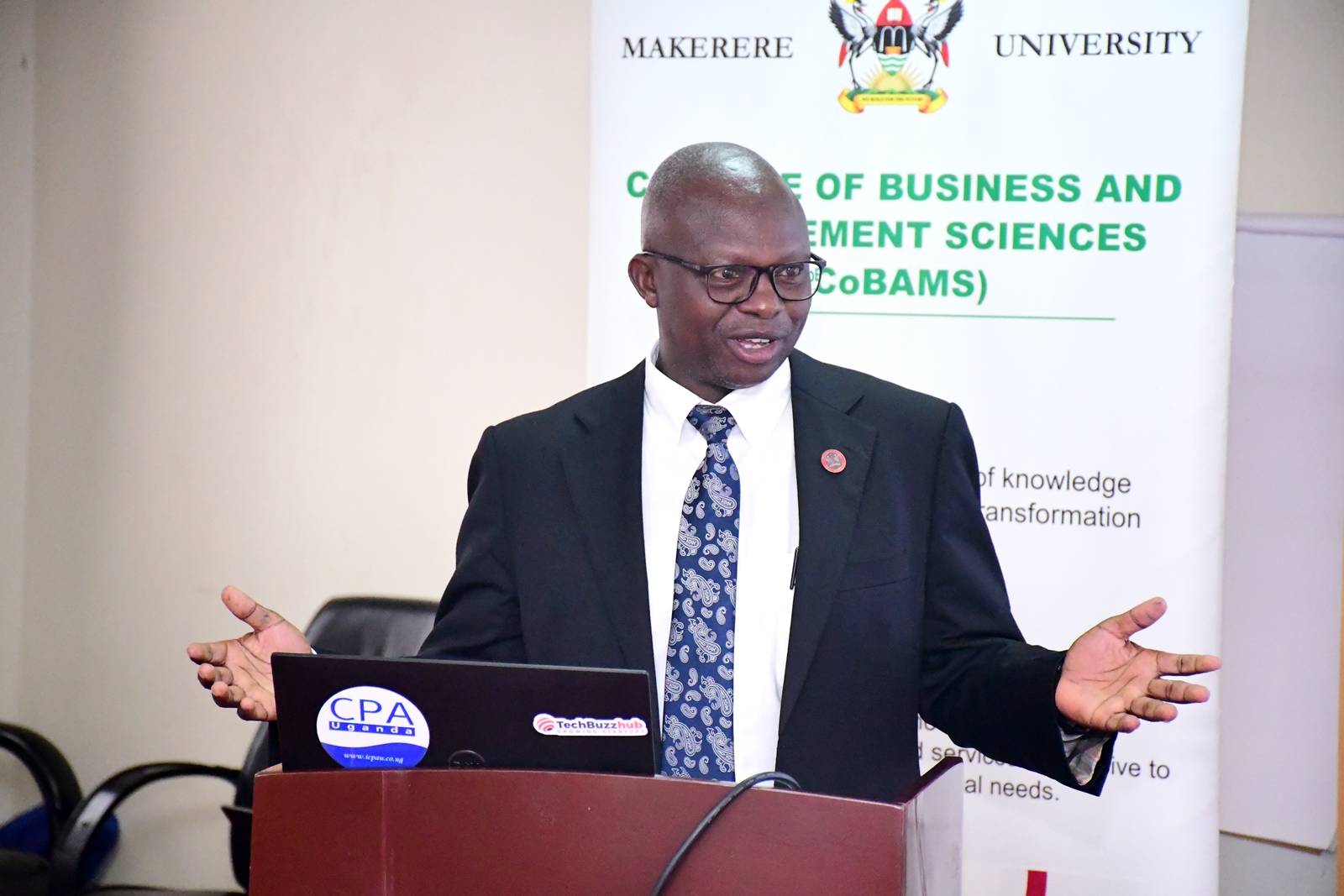
Sharing his lived experience, Associate Prof. James Wokadala, disclosed that a significant number of people entrusted with offices or managerial positions fear to make decisions. “One of key challenges faced by several organisations and universities is the fear by leaders and managers to take bold decisions. To address this challenge, this strategic leadership training conducted by the School of Business has been designed to empower you, with knowledge and skills in strategic decision making,” he stated.
The Coordinator of Partnerships and Collaboration, Dr. Martin Bakundana highlighted the importance of the program in developing leadership skills in a dynamic business environment. He acknowledged the growing relevance of leadership concepts such as transformational and thought leadership.
“We are at a turning point in the world of leadership, and it is essential for Makerere University to prepare its leaders for the challenges ahead,” Dr. Bakundana said. He encouraged participants to engage with the support team throughout the training, reinforcing the collaborative nature of leadership development. Dr. Bakundana is a Lecturer in the Department of Accounting and Finance, School of Business, at the College of Business and Management Sciences.
The remarks from the aforementioned University officials, set the pace for the training sessions. The first day featured two topics: Strategic Leadership Overview and contemporary issues by Associate Prof. Godfrey Akileng, and Driving Strategic Leadership to promote Organizational performance and success by Dr. Sam Eyamu.
Presenting the Strategic Leadership overview and contemporary issues, Associate Prof. Akileng tackled the following: The concept of change and the need to adapt, disruption being the new normal, strategic leadership styles, strategic leadership skills, as well as the principles of strategic leadership.
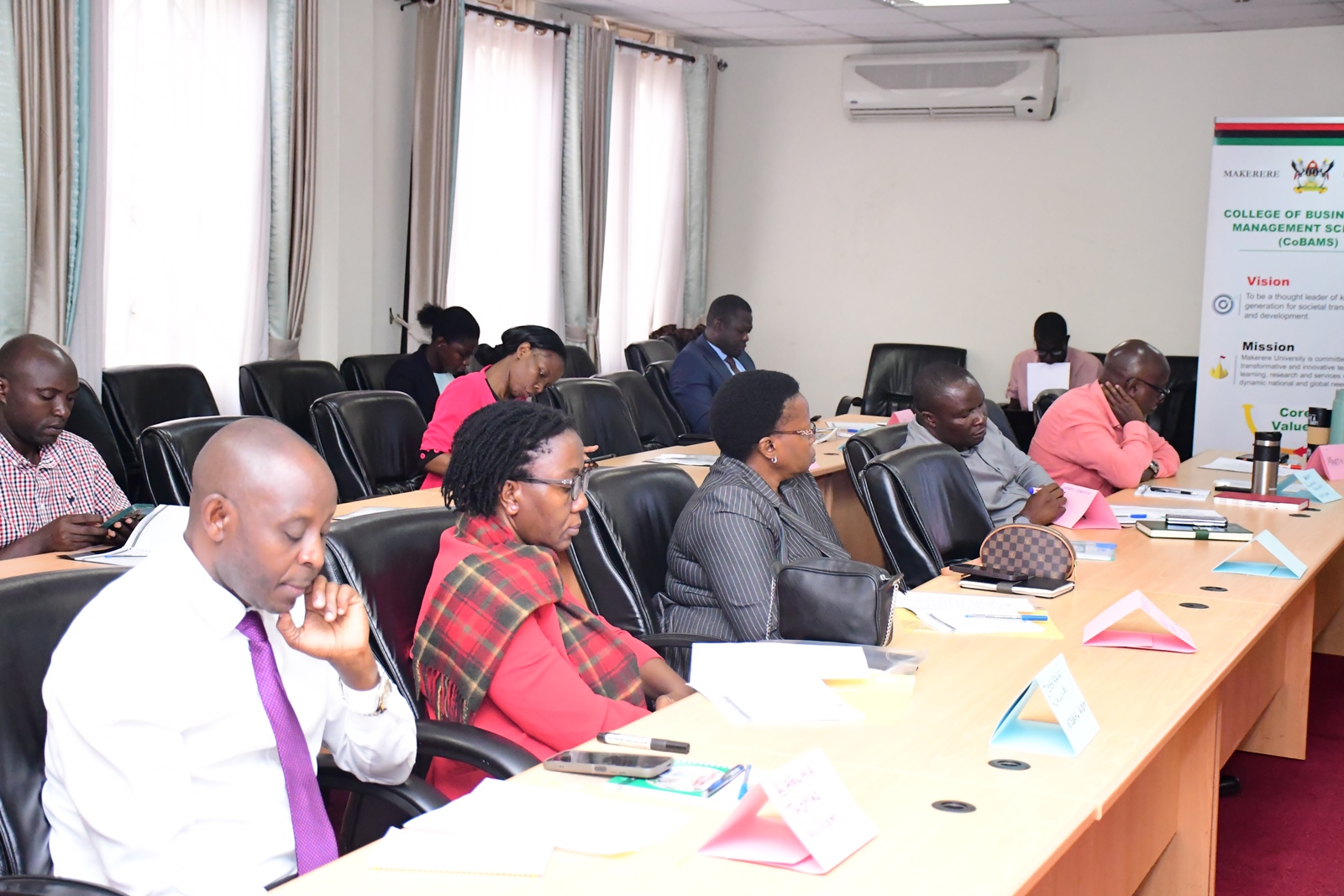
He kicked off his presentation by a powerful quote that enabled the audience to understand and appreciate the current business terrain. “We stand on the brink of technological revolution that will fundamentally alter the way we live, work, relate to one another. In its scale, scope and complexity, the transformation will be unlike anything humankind has experienced before,” Klaus Schwab Founder and Executive Chairman World Economic Forum.
Associate Prof. Akileng stated that change is a fact that is inevitable in our lives, with the landscape in which we work, constantly changing. He mentioned that organizations/institutions as well as Organizational settings do change, which necessitates leaders and staff to adapt to the trends by doing things differently. “I implore the leadership and staff to change the way they do things, if we are to survive,” he said.
Acknowledging that disruption is the new normal, he encouraged the participants to confront VUCA situations through strategic decision making. Coined in the early 2000’s, the military-derived an acronym-VUCA, which stands for Volatility, Uncertainty, Complexity and, Ambiquity.
Cognizant that change is inevitable, and that VUCA situations are prevailing in most organizations and business settings, Associate Prof. Akileng introduced the different strategic leadership styles namely transformative, visionary, transactional, and collaborative. He challenged the participants to apply the best leadership style or a blend of them.
For instance, Associate Prof. Akileng advised the middle and top level managers to utilize the collaborative leadership style when marketing a brilliant idea or an innovation. “You must work with others or behind the scenes to ensure that those in authority understand and support your idea.”
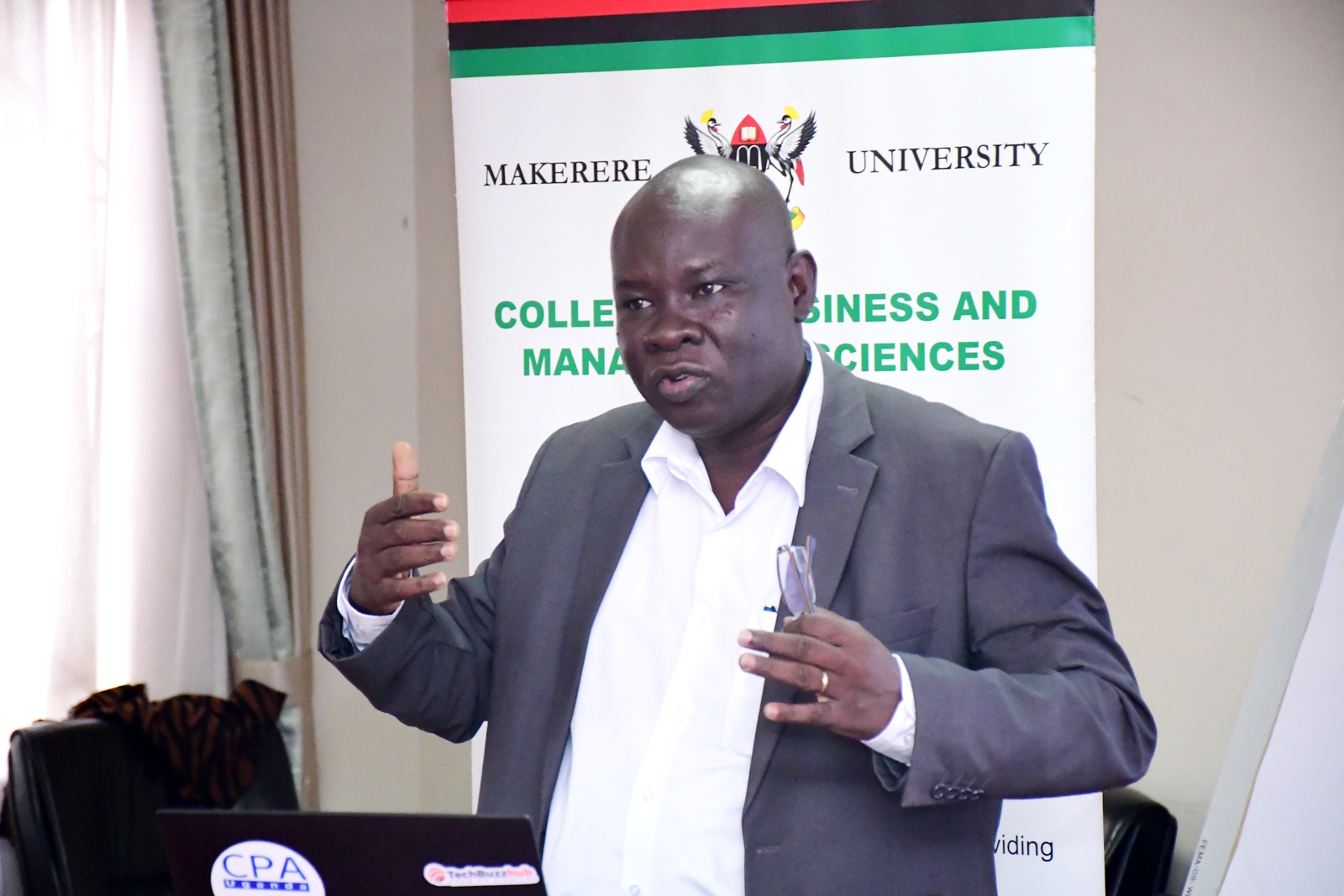
Drawing on lessons from past industrial revolutions, Associate Prof. Akileng emphasized that embracing technological advancements is critical for staying relevant. “History shows us that industries that failed to adapt to new technologies inevitably failed to compete,” he remarked.
Specific to education, he explained that COVID-19 disrupted teaching and learning. He added that most of the Universities in Africa that were pre-dominantly delivering lectures through physical interaction had to change and adapt to the terms and conditions dictated by the new normal. Universities embraced blended learning in order to overcome the disruption that threatened their comfort zones and preferred way of doing things.
He cited Makerere University, which deployed a blend of transformative, participant, and collaborative strategic leadership styles to rejuvenate its online learning systems/platforms. The Office of the Deputy Vice Chancellor (Academic Affairs), the College of Education and External Studies through its Institute of Open, Distance and e-Learning (IODel) worked with Colleges and the Directorate of ICT Support services (DICTS) to bring on board academic staff.
The Dean, School of Business indicated that the new normal in university education involves integration of online teaching, digital pedagogies, artificial intelligence (AI), Virtual Reality (VR), and Augmented Reality (AR) in teaching and learning, research and community engagements.
He called upon the participants to take into account the following strategic leadership skills: Foresight, curiosity, decisiveness, active listening, communication and diplomacy. He stressed that active listening is a key skill for a strategic leader.
Tackling the principles of Strategic leadership, the Dean-School of Business pointed out that strategic leaders are always on the top. He added that strategic leaders are innovative individuals, who are always pushing through brilliant ideas.
He notified the participants that strategic leaders take on the format of an eagle. “You must have a great vision with ability to navigate stormy turbulence, exhibit fearlessness, take the initiative, and have a high sense of self determination.”
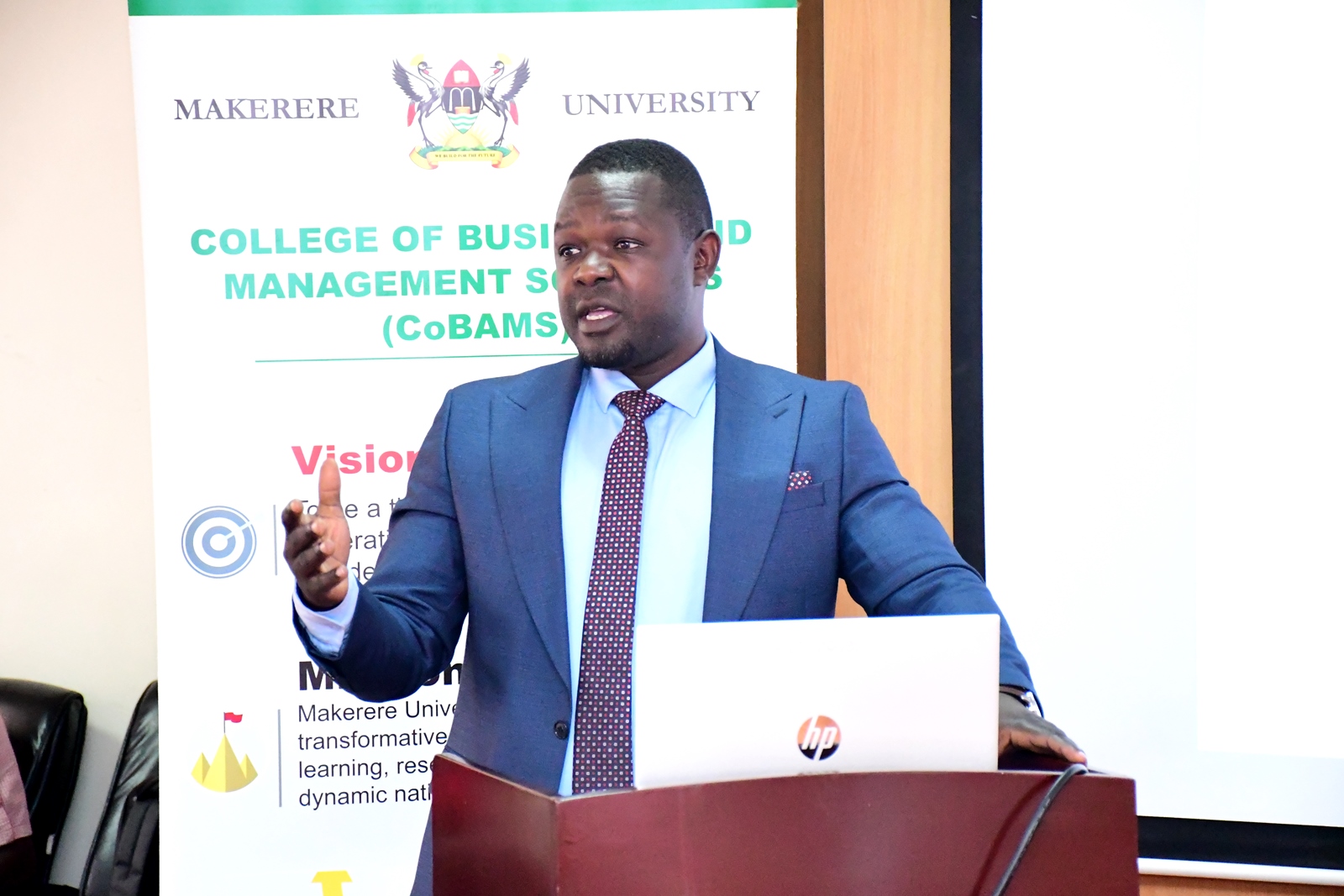
Presenting to the participants, Dr. Sam Eyamu, from School of Entrepreneurship and Management at Kyambogo University, provided insights into strategic leadership with an emphasis on organizational performance. He defined leadership as the ability to create a lasting legacy through collaboration. “Effective leadership inspires and unites teams, ensuring that their collective efforts have a long-term impact,” he said.
Dr. Eyamu guided that strategic leaders must work with others, be able to influence, and must create change. He articulated that strategic leaders should embrace Artificial Intelligence (AI). He advised university leaders and staff to accept that AI is the new normal, and work together to come up with policies and approaches on the integration of AI in the university systems and processes.
He added that strategic leaders should be resilient with ability to survive and lead the team to the desired goal. He called upon the participants to set goals, use key performance indicators, come up with work plans, score cards, and among other methods that measure performance. He introduced several tools designed to align strategy with performance, including the Balanced Scorecard, Objectives and Key Results (OKRs). Dr. Eyamu disclosed that celebrating small successes can accumulate into significant organizational momentum.
Dr. Eyamu highlighted two distinct leadership approaches: Rapid Fire Leadership, which encourages trying multiple strategies quickly and the Sniper Leadership that focuses on a more deliberate and calculated approach.
He argued that both approaches are valid depending on the available resources, with resilience and persistence being key to success in either model. He also emphasized the importance of clear strategic direction, ensuring that all team members understand their roles in achieving organizational goals.
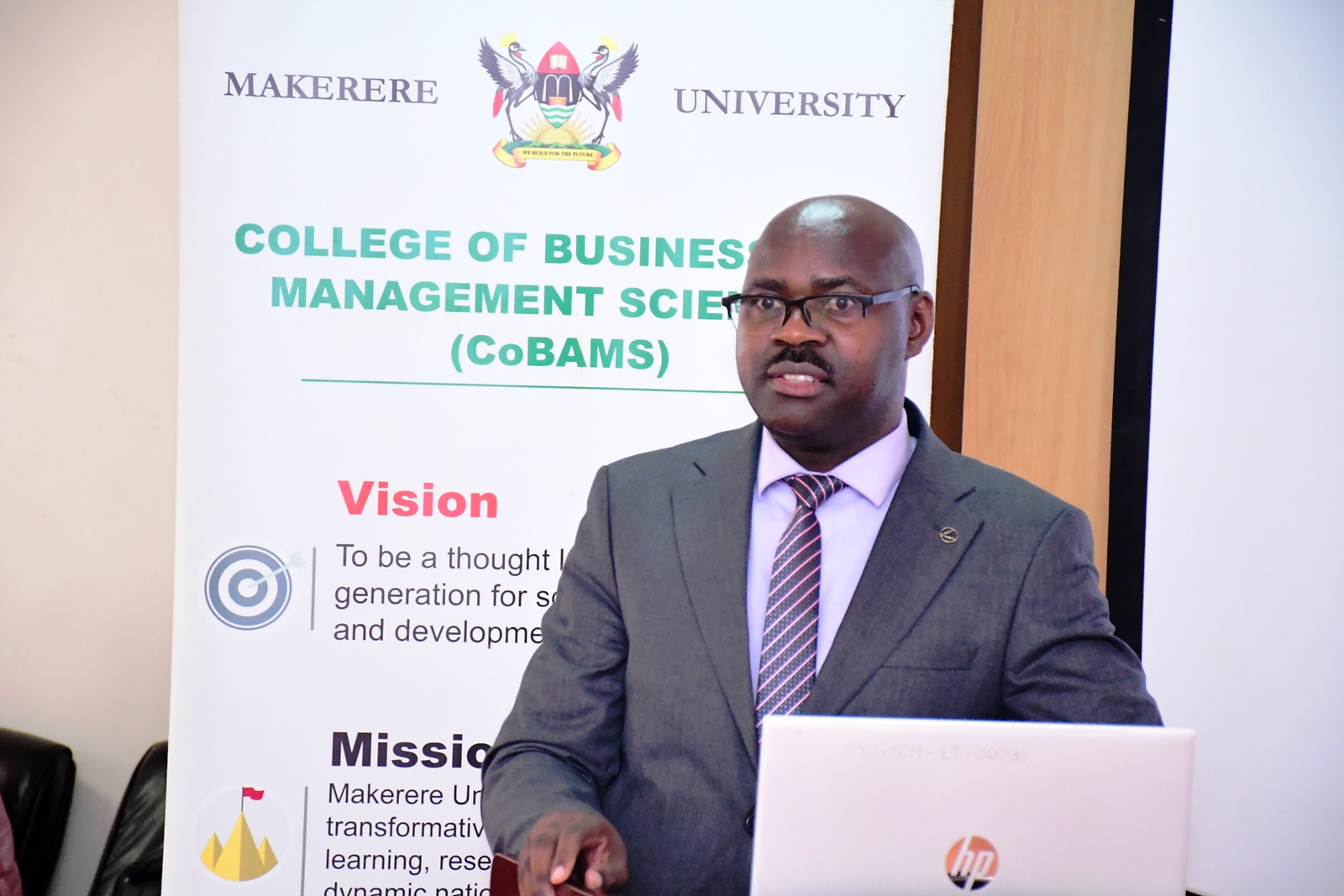
Additionally, Dr. Eyamu stressed the critical importance of performance measurement tools, such as Key Performance Indicators (KPIs), work plans, and the Balanced Scorecard, to track progress toward strategic goals. He introduced performance dashboards, which provide real-time data, and benchmarking, which allows organizations to compare their performance with industry best practices.
Dr. Eyamu introduced the Triple Bottom Line (TBL) framework, which balances social impact, environmental sustainability, and financial performance. He said that organizations must take a holistic approach to success, considering more than just the financial outcomes.
Presenting the practical tips for success, he encouraged the participants to; adopt a performance measurement framework and tool, foster and reward a culture of accountability and results, lead by example, be transparent by ensuring a consensual decision-making process, and empower team members through delegation of duties and trusting them to deliver.
The first day of the Strategic Leadership Training ignited the strategic leadership potential of the participants, which involves getting out of the comfort and safe zone, to champion the transformation at the institutional or Unit levels. The University leaders and participants in general, were encouraged to take charge by being alert, studying the times and trends, as well as coming up with innovations and strategies to create a positive difference.
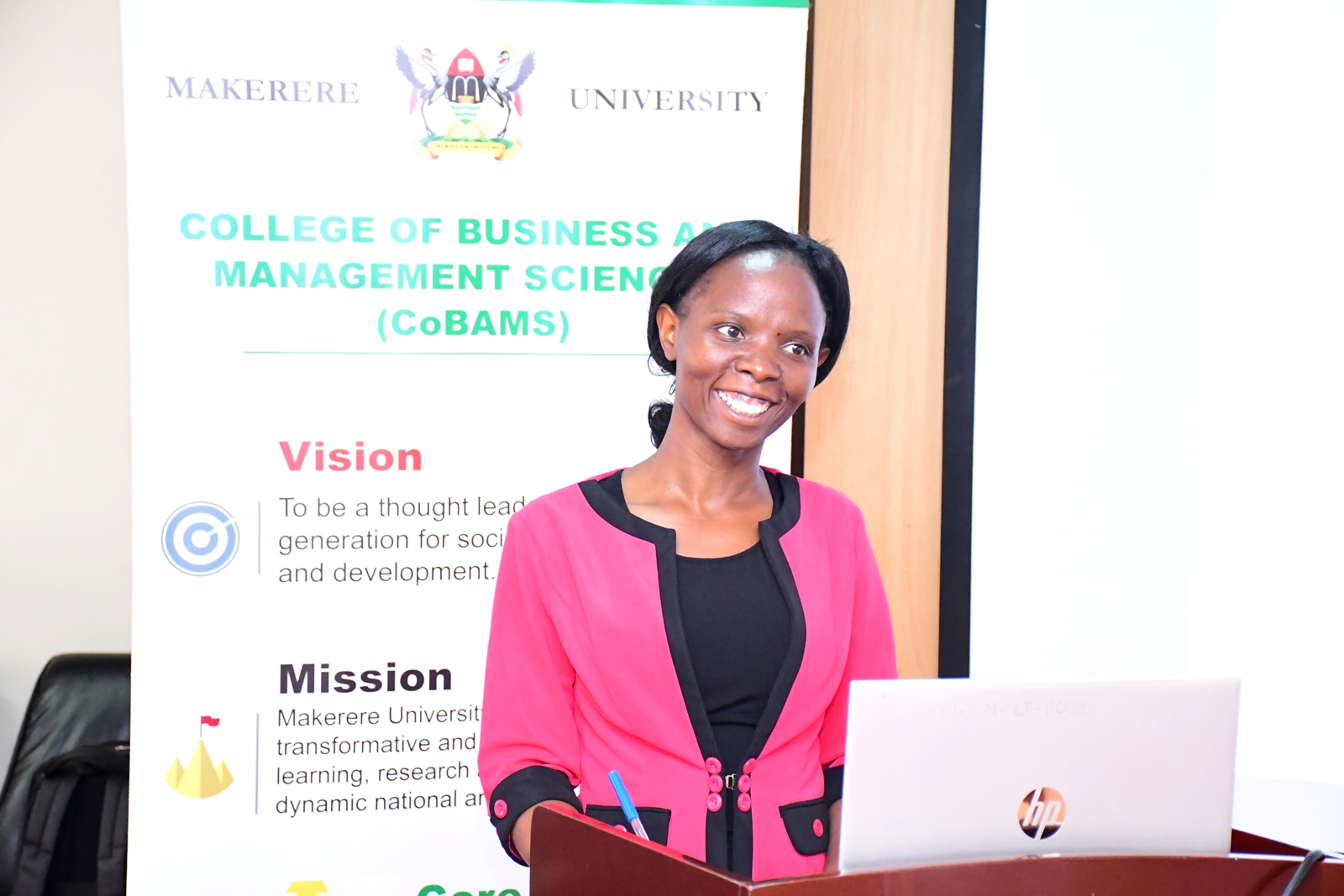
The Strategic Leadership Training was moderated by Dr. Martin Bakundana-Coordinator of Partnerships and Collaboration assisted by Ms. Ritah Namisango-Principal Communication Officer.
Business & Management
Swedish Ambassador Calls on Uganda to Lead Africa’s E-Mobility Revolution
Published
2 weeks agoon
July 2, 2025By
Jane Anyango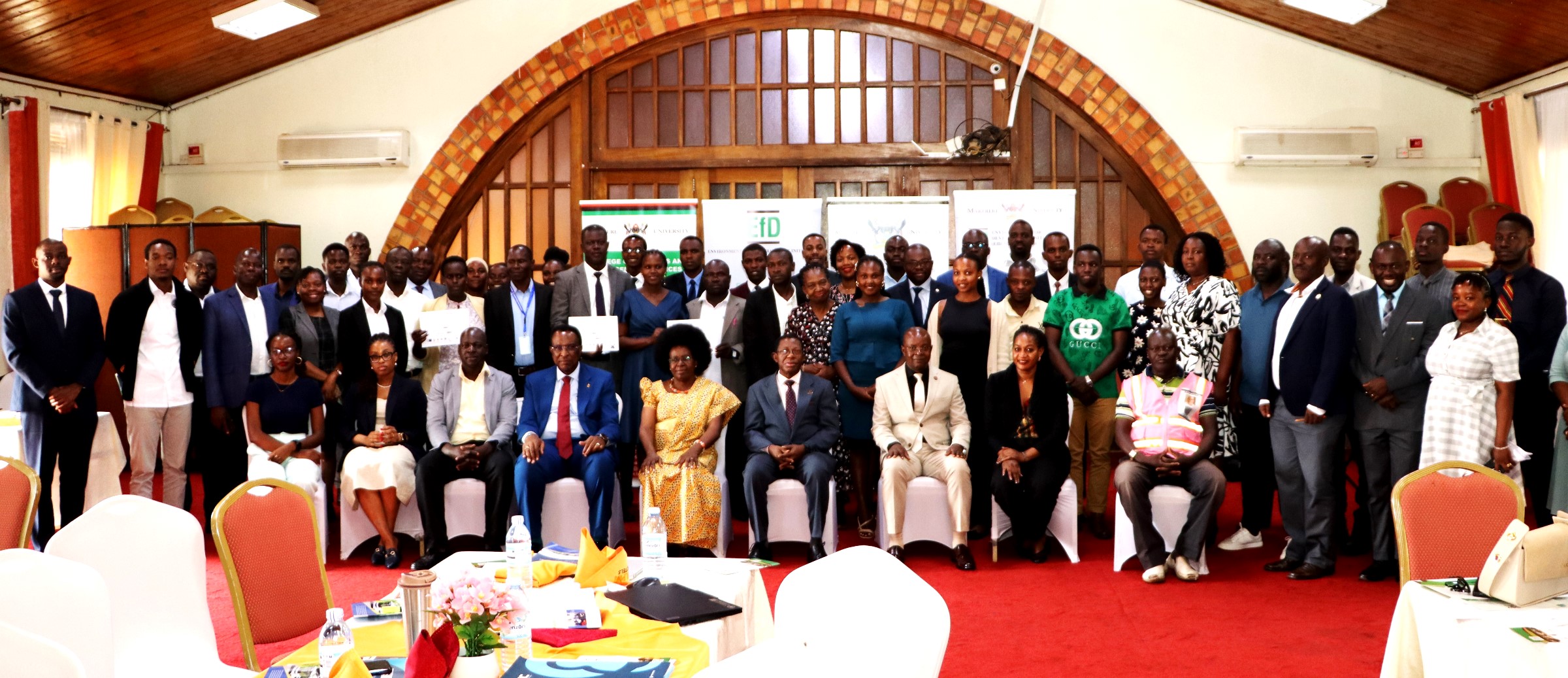
By Monica Meeme and Jane Anyango
Kampala, July 2, 2025
The 4th Cohort of the Inclusive Green Economy (IGE) Fellows 2024–2025 has graduated with certificates at a colorful ceremony held at the Kampala Kolping Hotel. The new IGE cohort 2025–2026 was also introduced during the event. The fellows—senior public servants from five key government institutions—completed a year-long training on green economic transformation, focusing on reducing emissions in Uganda’s transport sector. The participating institutions included the Ministry of Finance, Planning and Economic Development (specifically the new Climate Finance Unit), Ministry of Energy and Mineral Development, Ministry of Water and Environment, the National Planning Authority, and the Kampala Capital City Authority (KCCA).
The IGE Fellowship, funded by the Swedish International Development Cooperation Agency (Sida), is a capacity-building initiative coordinated by the University of Gothenburg in collaboration with Uganda’s Makerere University. This year’s program brought together senior officials from Uganda’s public sector to address policy and practical challenges in promoting e-mobility and reducing transport emissions.
The graduation ceremony attracted over 120 participants from Uganda’s ministries and agencies in water, minerals, and energy, as well as private sector players, academia, and civil society organizations. Dignitaries from Makerere University, including Vice-Chancellor Prof. Mukadasi Buyinza, several deans, and commissioners were present. Also in attendance were representatives from Kira Motors, UETCL, and other stakeholders in Uganda’s emerging e-mobility sector. The event was presided over by the Swedish Ambassador to Uganda, H.E. Maria Håkansson, as Chief Guest. Other dignitaries included the Minister for Science, Technology and Innovation, Hon. Dr. Monica Musenero; the Vice-Chancellor’s representative, Prof. Buyinza Mukadasi (also Academic Registrar and Acting Deputy Vice Chancellor in charge of Academic Affairs); and the Principal of the College of Business and Management Sciences, who also leads the Uganda IGE program.
Sweden’s Call to Action
H.E. Maria Håkansson commended Uganda’s efforts to transition to a green economy and urged the country to lead Africa’s e-mobility revolution. Speaking at the ceremony, Ambassador Håkansson emphasized the importance of clean transport solutions for achieving climate goals and driving national development.
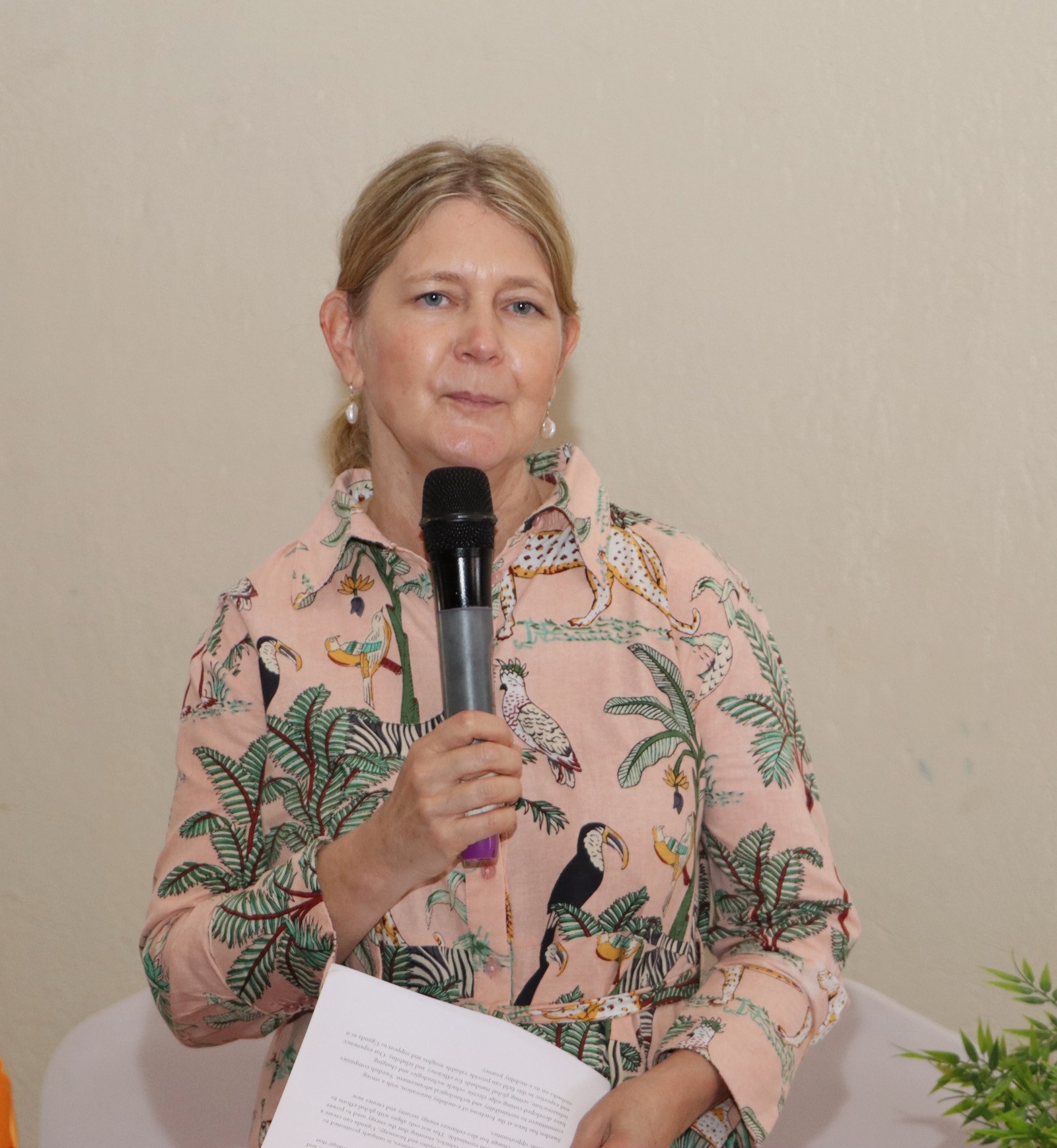
“It is a pleasure and honor to celebrate a cohort of professionals now better equipped to shape Uganda’s green economy,” she said. “This year’s focus on e-mobility is not just timely—it’s essential.”
She stressed that transitioning to electric mobility is more than a technological shift—it’s a paradigm change with broad social, economic, and environmental implications.
“Uganda, with its abundant renewable energy resources—solar, hydro, and bioenergy—is uniquely positioned to lead this transition,” she noted. “Clean energy must power clean transport.”
Drawing on Sweden’s experience, Håkansson said Swedish companies have set global benchmarks in electric vehicle technologies and infrastructure. She reaffirmed Sweden’s readiness to support Uganda in building a sustainable e-mobility ecosystem.
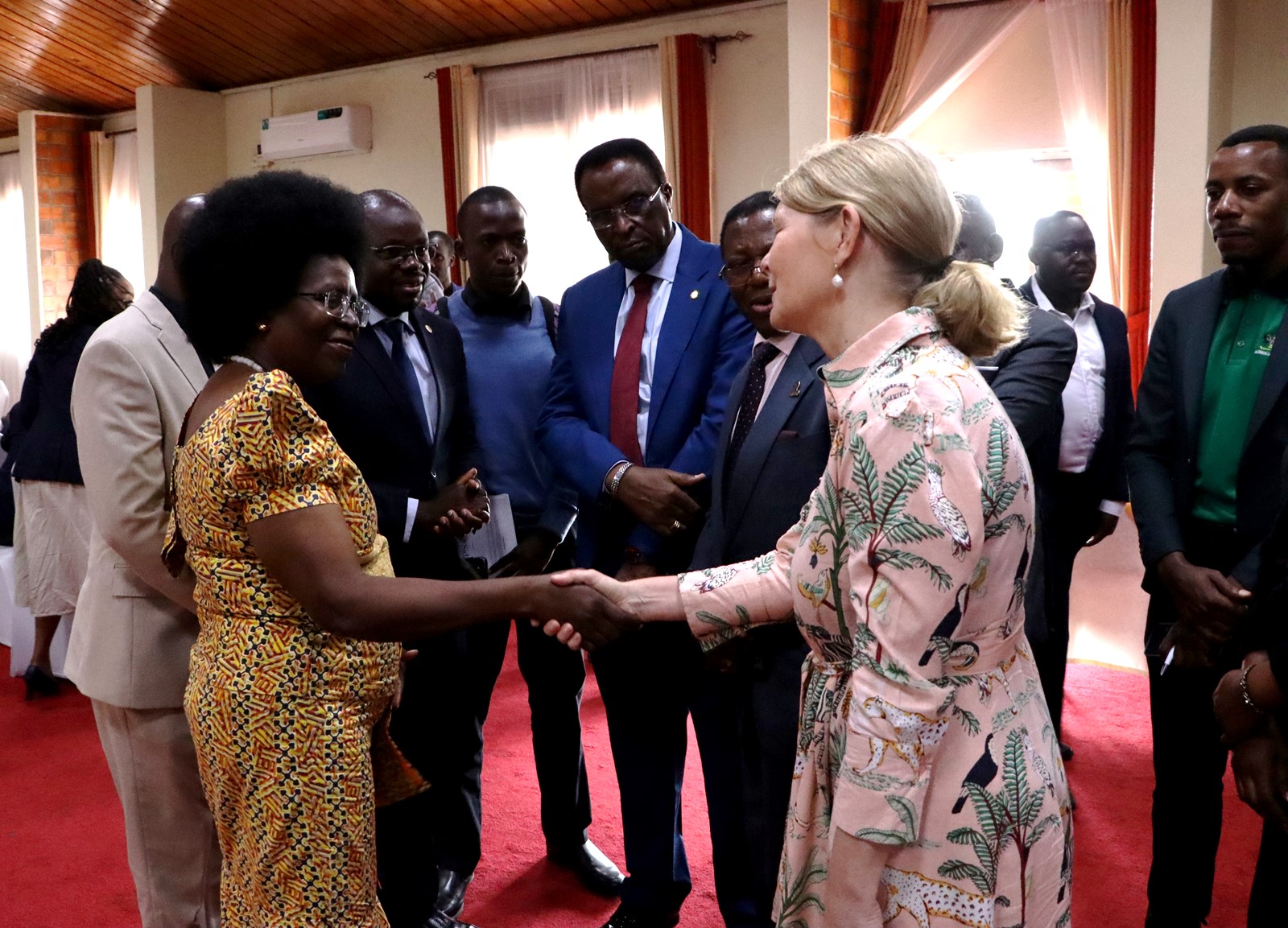
“Investment in charging infrastructure, incentives for EV production and use, and public awareness campaigns are essential to making this work,” she said.
She also called for a whole-of-society approach, urging collaboration between government, academia, the private sector, and civil society.
“It’s inspiring to see multi-sectoral representation here. This is exactly what’s needed to move from policy to impact,” she added.
A Message to the Graduates: Be the Pioneers
Addressing the 2024 IGE Fellows directly, Ambassador Håkansson described them as pioneers of Uganda’s green transformation.
“You have the knowledge, the skills, and the platform to influence policy, drive innovation, and lead by example,” she said. “Embrace that responsibility with passion and determination. Uganda’s future is in your hands.”
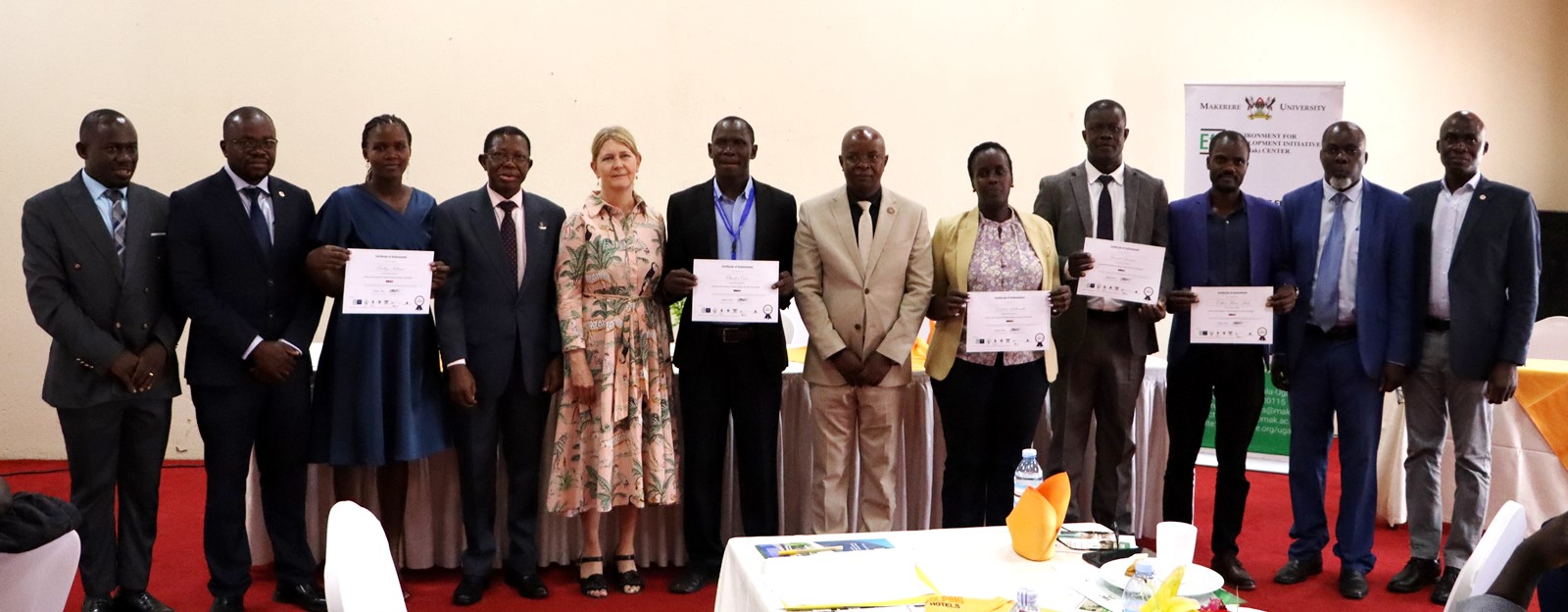
She concluded by congratulating the fellows and reaffirming Sweden’s commitment to supporting Uganda’s green economy agenda.
“Your achievements are not just personal milestones; they are part of a broader mission to ensure a better, cleaner, and more sustainable future for all.”
Minister Musenero Urges Integration of STI and Economic Policy
Minister for Science, Technology and Innovation, Dr. Monica Musenero, called for urgent alignment of science, technology, and innovation (STI) with economic policy to transition Uganda into a sustainable green economy.
She emphasized the role of public sector leadership in combating climate change through e-mobility, energy efficiency, and adaptive economic strategies.
“This cohort has shown what’s possible when we equip our civil service with tools and knowledge beyond traditional silos,” she said. “STI alone cannot transform our economy. Without the right incentives and economic policies, even the best innovations may not scale.”
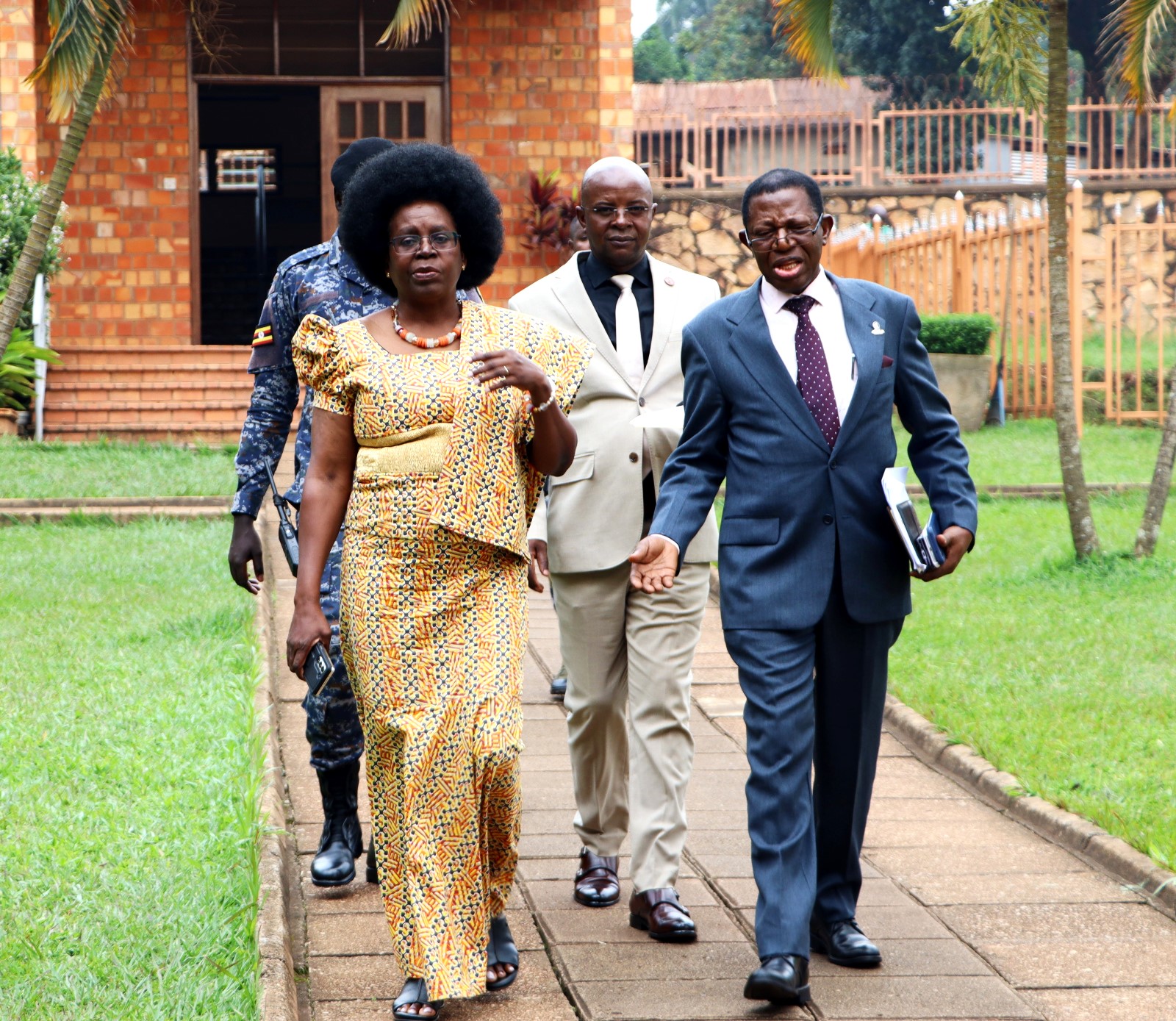
E-mobility was central to the fellows’ training. From motorcycles to buses, Uganda’s electric vehicle transition was presented as both an environmental necessity and an economic opportunity. Kira Motors Corporation was highlighted as a standout example that has inspired regional interest.
“Our transport sector is a major emitter,” said one program coordinator. “But through e-mobility and better planning, we can make real progress. That’s why we brought together not only policymakers but also private sector players, utility providers, and boda-boda operators.”
The IGE Program operates in Uganda, Kenya, Tanzania, Rwanda, and Ethiopia. It combines technical training, peer learning, and national policy engagement.
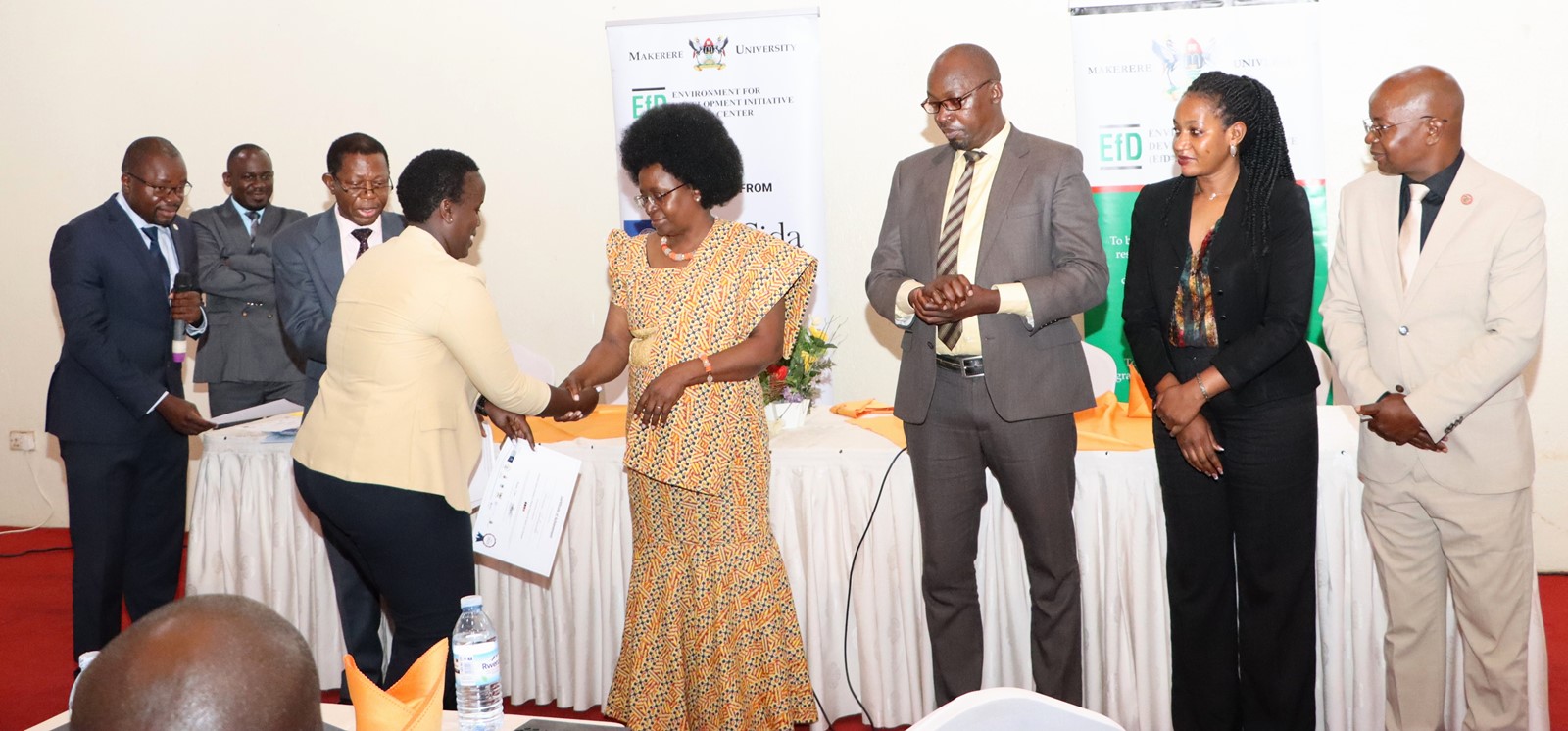
Fellows visited institutions in Rwanda, Kenya, and Ethiopia to exchange experiences and showcase Uganda’s successes—particularly the Kira EV initiative, which has become a regional benchmark.
Dr. Musenero emphasized Uganda’s commitment to using STI to meet its climate goals but cautioned against fragmented efforts.
“Africa may contribute less than 4% of global emissions, but we suffer disproportionately,” she said. “This is our moment to lead—not just through innovation, but by creating the right environment for innovation to flourish.”
Musenero Warns Against Passive Technology Adoption
Dr. Musenero urged African nations to stop passively receiving technology and instead harness it for economic sovereignty and relevance.

She argued that unless African countries take control of their role in the Fourth Industrial Revolution, they risk falling into cycles of dependency.
“We now have enough PhDs, institutions, and qualified leaders,” she said. “So it’s unacceptable that Africa receives this revolution as it did the last—awed by foreign inventions but unable to replicate them.”
While e-mobility is often framed as a climate solution, she urged fellows to focus on wealth creation, job generation, and manufacturing.
“Thriving means growing despite challenges. Harnessing is using innovation as a launchpad for prosperity. That’s the mindset we need.”
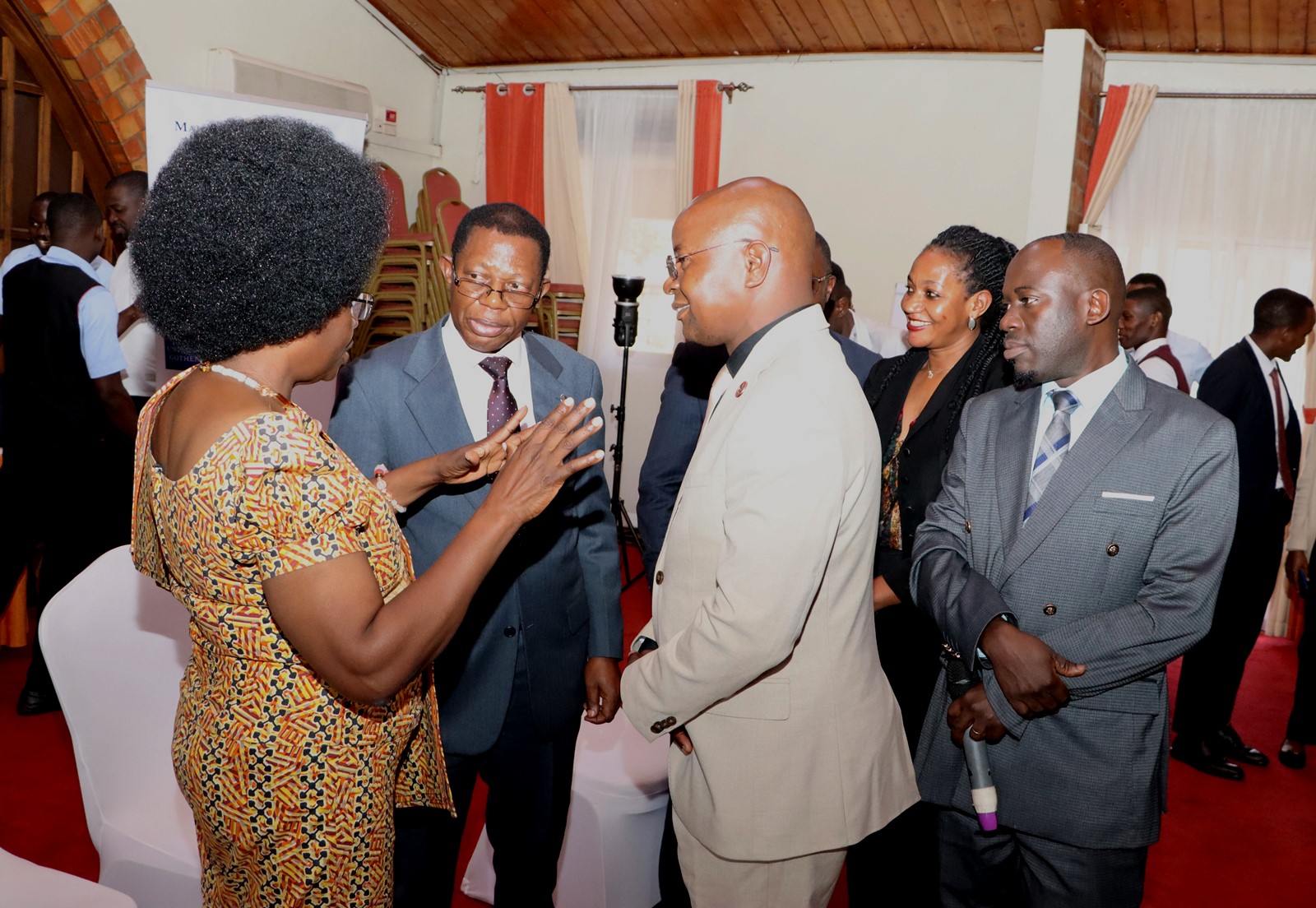
She warned that Uganda’s green transition must go beyond emissions reduction to address economic transformation.
Dr. Musenero offered a historical account of how past industrial revolutions left Africa behind—not due to lack of technology, but due to lack of understanding.
“The first industrial revolution didn’t start with a master plan—it started small and grew. But countries that embraced it changed forever. Africa, meanwhile, was herding cattle,” she said.
Now, with digital technology, AI, biotechnology, and green energy, Africa must act decisively.
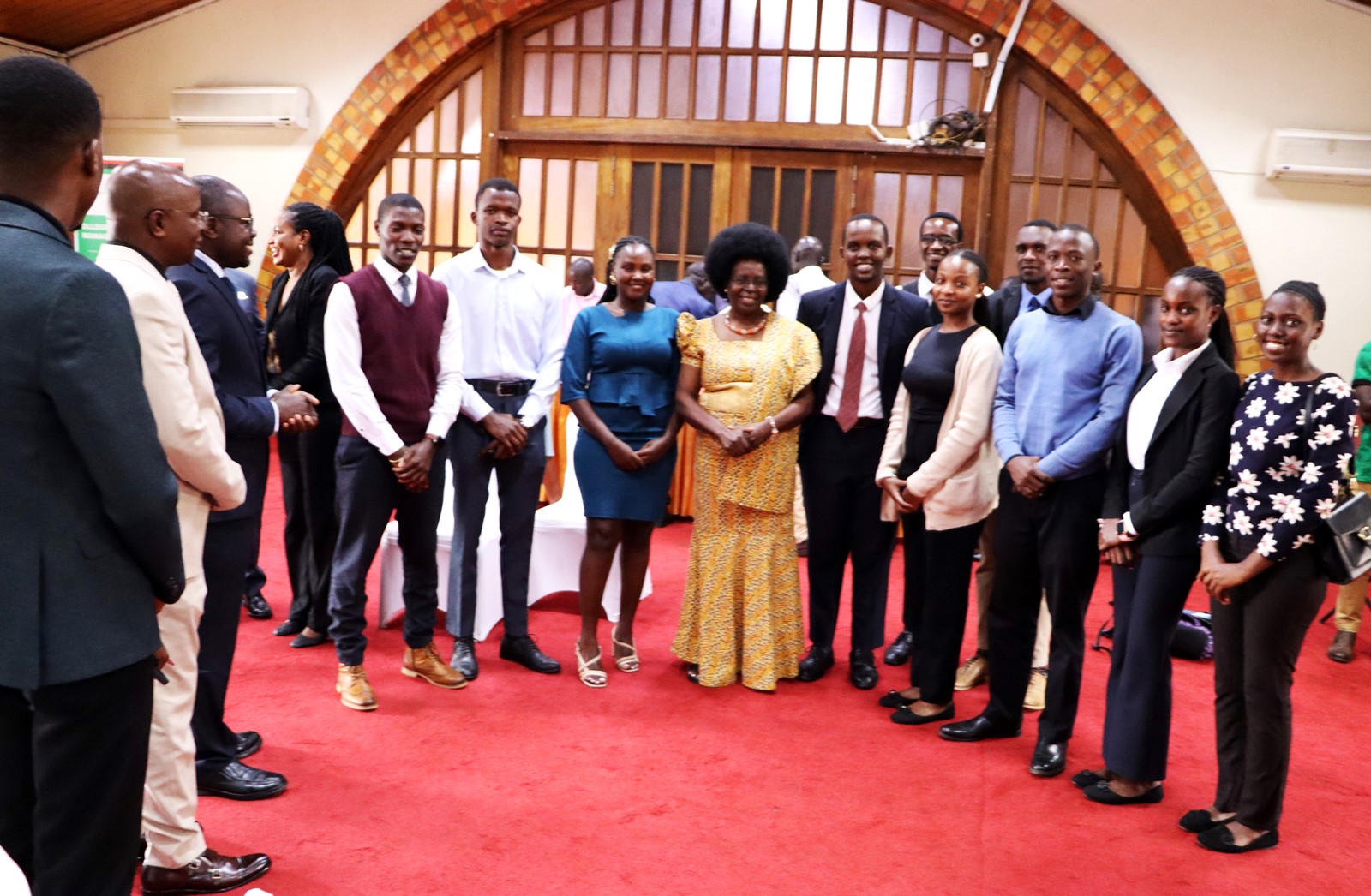
“We were unprepared then. But now we have the tools, the minds, and the responsibility.”
She concluded with a call for internships and deeper policy engagement, suggesting that all IGE Fellows be seconded to her ministry.
“We need you to think—not just about policies, but about the why. Why e-mobility? Why now? What does it mean beyond emissions?”
Makerere University Urges Fellows to Champion Uganda’s Green Future
Prof. Mukadasi Buyinza, representing the Vice-Chancellor, urged the graduates to become ambassadors of the green economy, leading transformative change.
He praised the year-long training as timely and vital for addressing regional environmental and economic challenges.
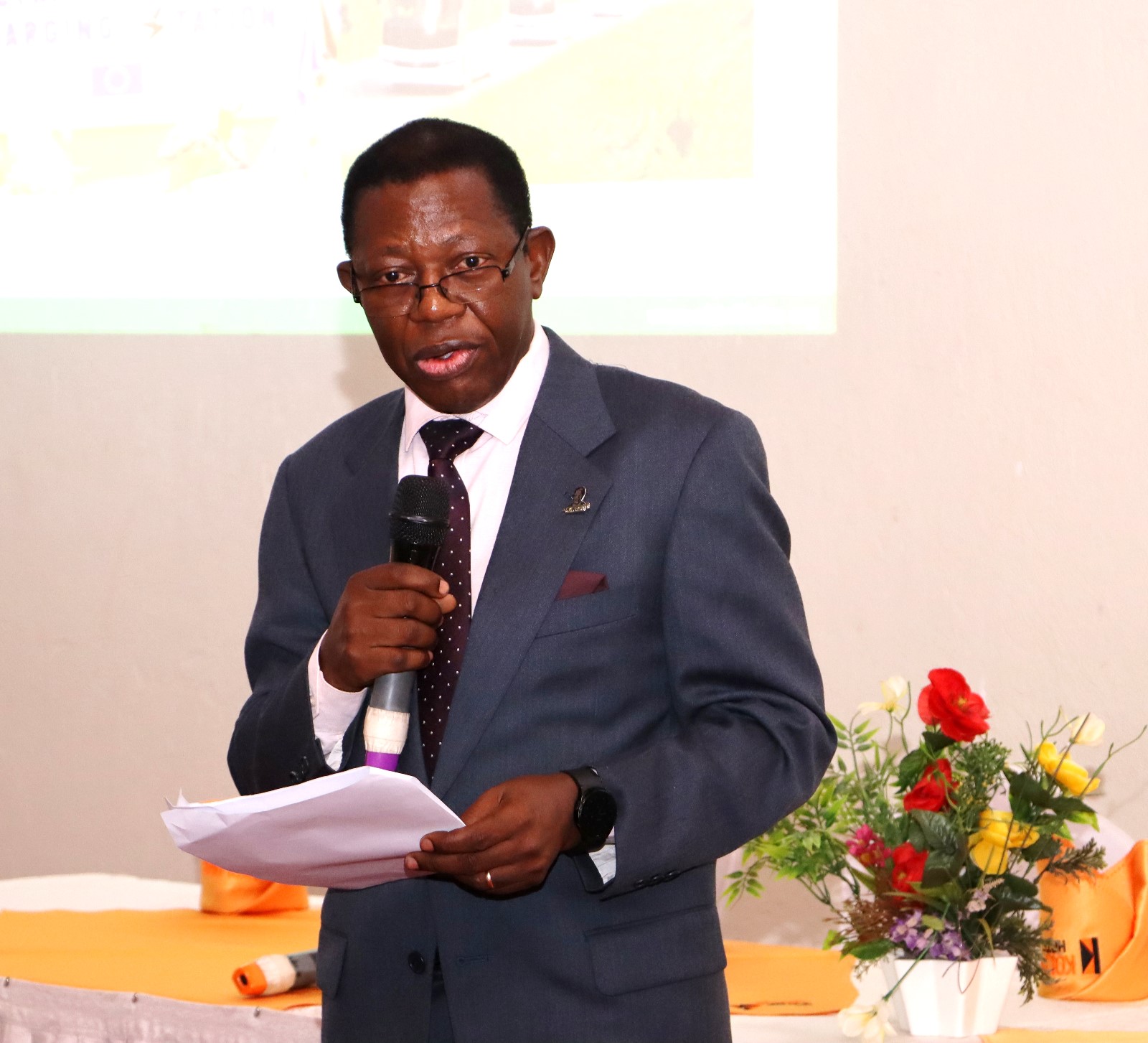
“Technology never solves problems without creating others,” he said. “As we develop, we must manage the disruptions that come with it.”
The program, supported by Sida and hosted by Makerere University, equips senior government officials with tools for green policy-making. This year’s fellows came from finance, energy, environment, and planning sectors—central to Uganda’s development.
Prof. Buyinza highlighted the inclusion of climate finance officers, planners, and engineers, noting that cross-sector collaboration is key.
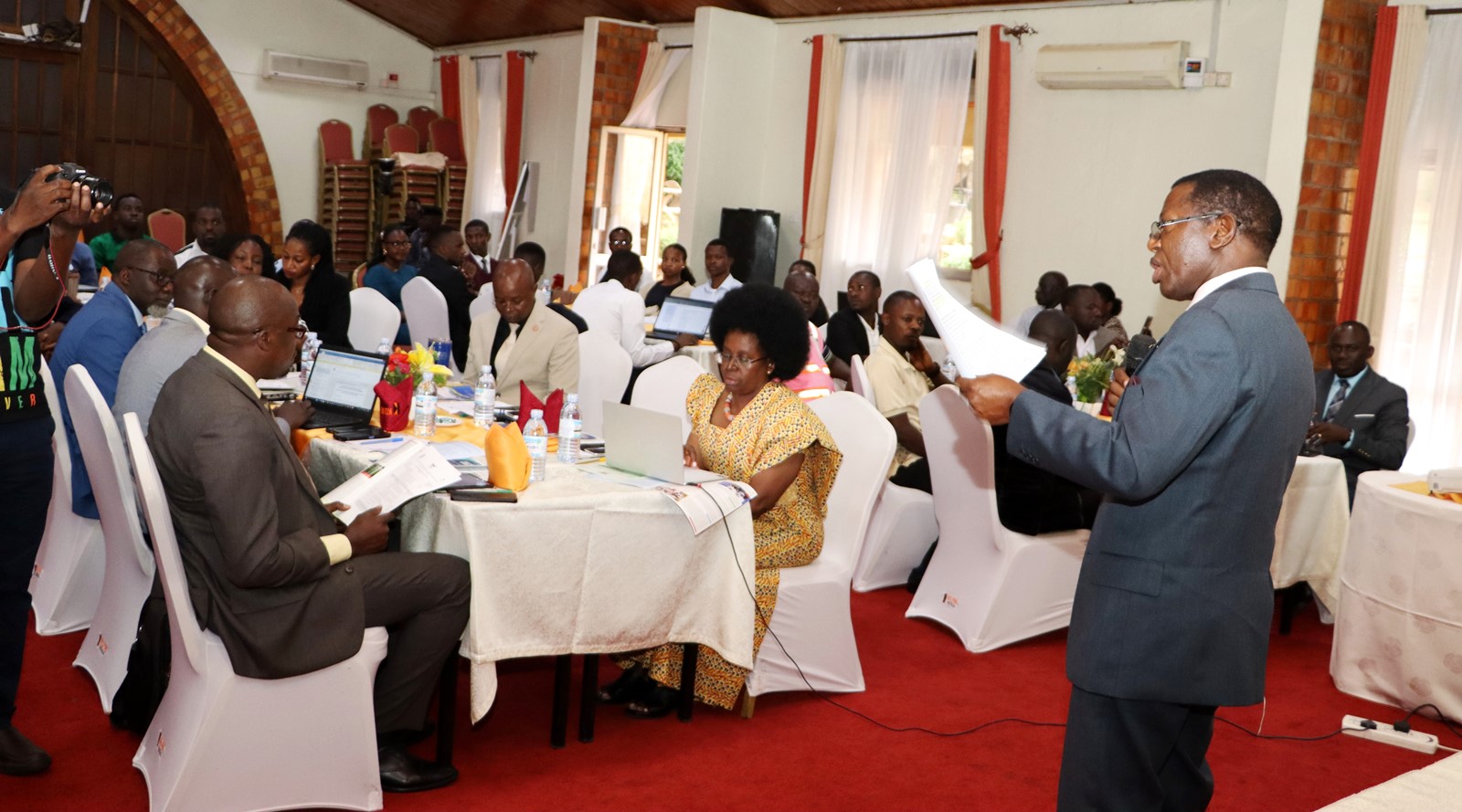
“This is how we build a green industrial economy,” he said. “Green skills, green jobs—that’s the call of the time.”
He celebrated the program’s regional scope, involving fellows from Uganda, Rwanda, Tanzania, and Ethiopia, and stressed knowledge-sharing across borders.
“This transition from diesel to electric vehicles offers real opportunities to improve air quality, reduce emissions, and modernize transport.”
He concluded by reminding graduates of their duty:
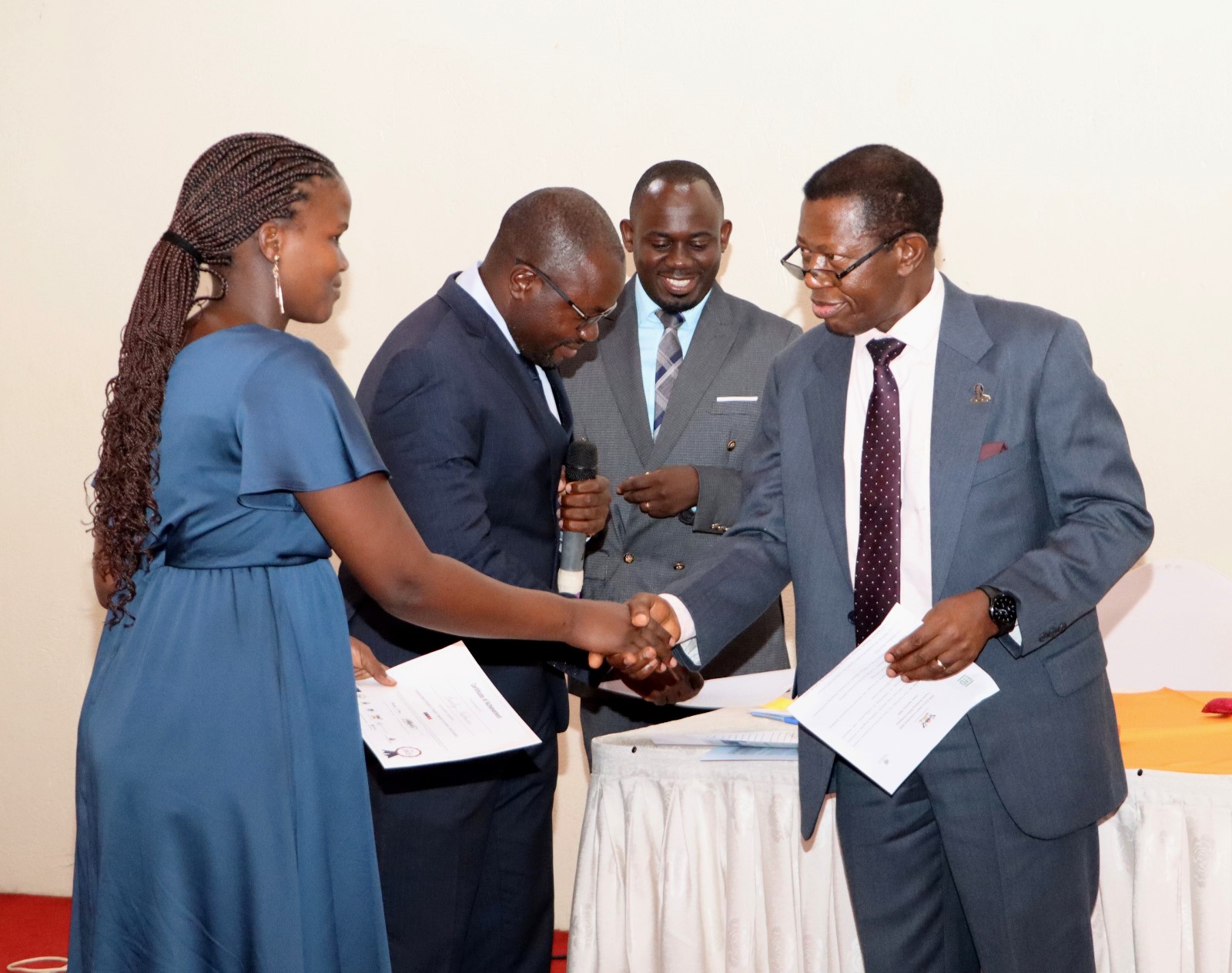
“You are our ambassadors. We count on you to deliver transformative, scalable programs that shape Uganda’s future.”
Prof. Edward Bbaale: “Seeds of Transformation”
Prof. Edward Bbaale, Director of the IGE Programme, described the initiative as a model of interdisciplinary excellence.
“You are seeds of transformation,” he said. “You’ve not just completed a course—you’re now champions of Uganda’s green transition.”
Fellows were drawn from five key institutions and focused on reducing transport emissions through energy efficiency and e-mobility.
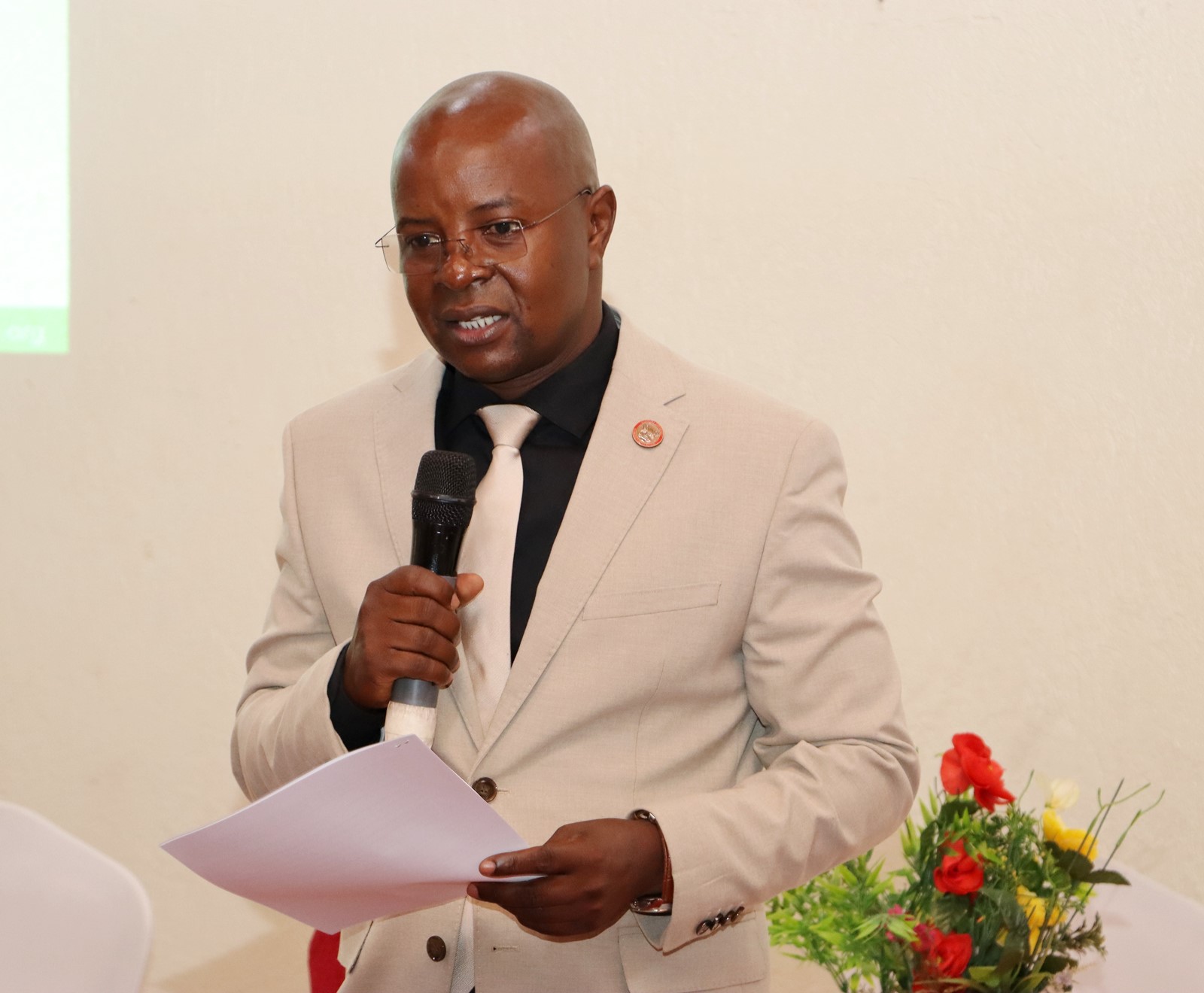
Prof. Bbaale emphasized the need for cross-sector dialogue and noted that e-mobility is not just about technology—it’s also about infrastructure, incentives, and economics.
“Scientific breakthroughs must be matched by sound economic policy,” he said. “Without the right tools—taxes, subsidies, regulation—green initiatives may stall.”
He pointed out that Africa, though contributing less than 4% of global emissions, suffers disproportionately, demanding urgent and pragmatic responses.
He lauded the regional scope of the program and Uganda’s leadership, particularly the Kira EV model, which has drawn admiration across East Africa.
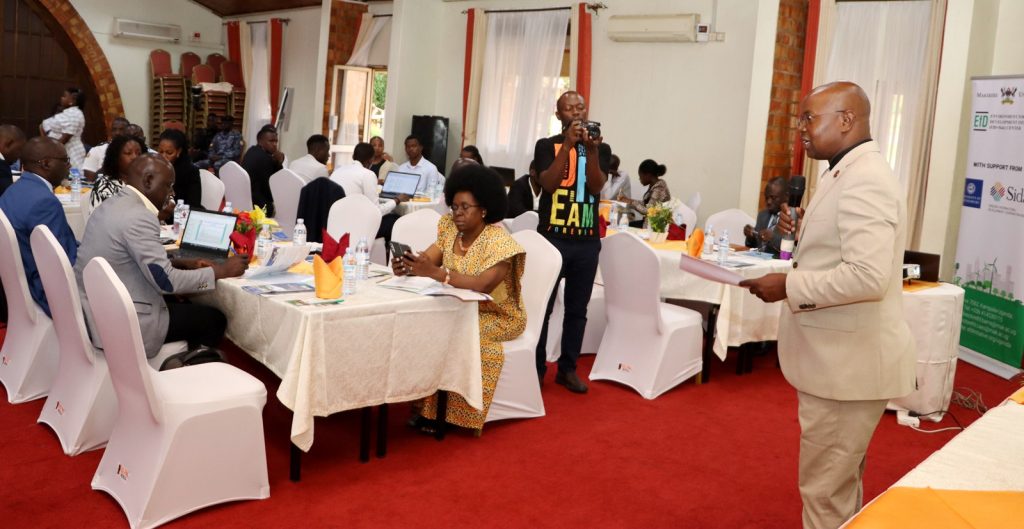
Prof. Bbaale credited Sida, the University of Gothenburg, Makerere leadership, and Dr. Musenero for bridging the gap between science and economics.
“Be the voice of change. Let your work reduce emissions, create jobs, and improve lives,” he urged the graduates.
The Journey of the 2024 IGE Fellows
When the 2024 IGE Cohort began in April, few anticipated the scale of transformation—both professionally and personally.
One fellow, Charles Ochen from the Ministry of Water and Environment, described it as “a lived experience in real policy transformation.”
Fellows engaged in immersive workshops, field visits, and practical sessions grounded in Uganda’s development context. A solar-powered facility visit early in the program emphasized the feasibility of renewables.
The cohort’s focus—“Energy Efficiency and Reduced Emissions in Uganda’s Transport Sector”—was timely. They studied everything from electric motorcycles to EV infrastructure.
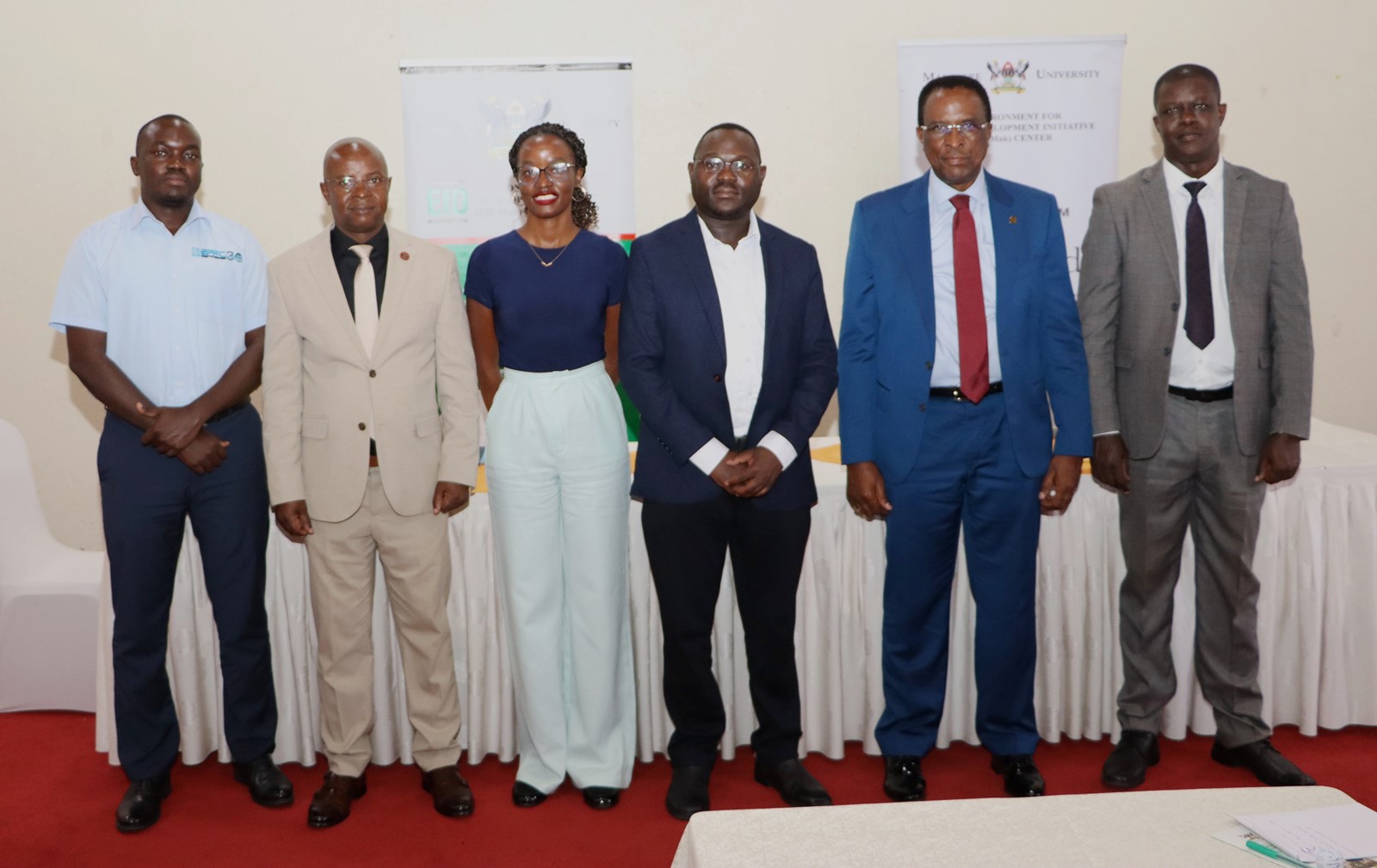
Doreen Ankunda identified key barriers:
- Unpredictable tax exemptions
- Lack of standards for charging infrastructure
- Limited fiscal incentives
- Low public awareness
Their policy proposal included:
- National charging infrastructure guidelines
- Stable EV-related tax policies
- Incentives for local assembly
- Public education campaigns
Fellows also participated in peer learning across the region. Uganda’s Kira Motors was praised, while insights from Kenya and Rwanda enriched their understanding.
Charles Ochen emphasized: “You can’t bring policy without bringing stakeholders.”
Panel Discussion and Closing Remarks
Panelists highlighted both opportunities and challenges in Uganda’s e-mobility sector.
Kira Motors, Uganda’s flagship EV manufacturer, reported progress: nine electric buses in operation, over 300 operators trained, and expansion plans underway.
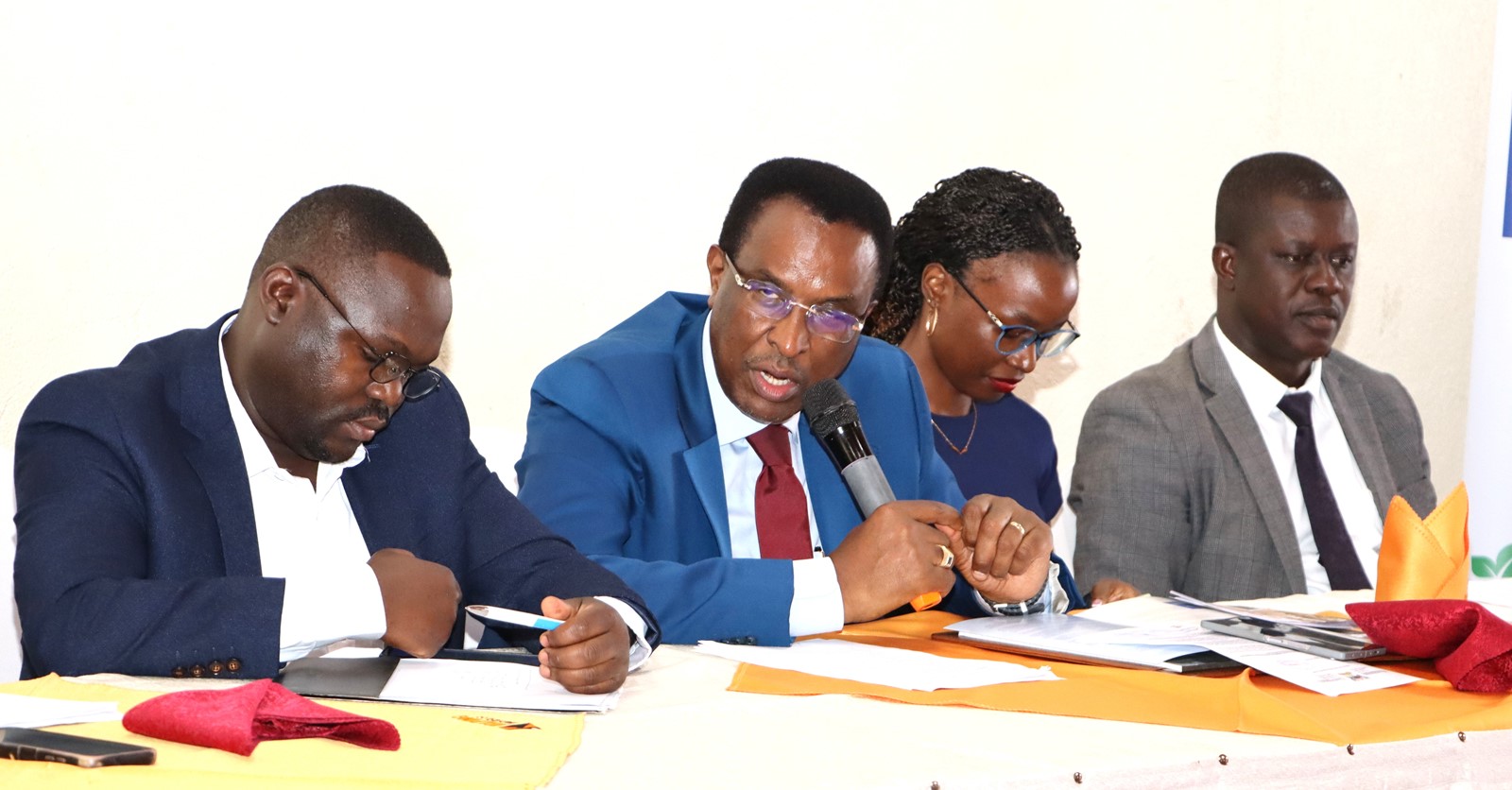
However, challenges persist:
- Low rural awareness and misinformation
- Shortage of trained EV technicians
- Limited charging infrastructure
- High EV costs for ordinary users
Policy gaps also remain. Drafts on EV standards and battery recycling await approval.
Commissioner Dr. Brian Isabirye stressed institutional alignment: “If Parliament can fund fuel cars, why not electric buses?”
Sweden’s ambassadorial team praised the IGE platform for uniting voices across sectors.
“Too often, we work in silos. This forum proves that dialogue leads to action.”
Monica Meeme is an Internee and Jane Anyango is the Communication Officer EfD Uganda
Trending
-

 Education1 week ago
Education1 week agoAdmission List to Bachelor of Education External (BED) 2025/26 -Private Sponsorship
-

 General2 weeks ago
General2 weeks agoUndergraduate Admission List Self Sponsorship Scheme 2025/2026
-

 General6 days ago
General6 days agoRe-advert: Admission to Undergraduate Programmes 2025/2026
-

 General2 weeks ago
General2 weeks agoAdmission Lists -Disability and District Quota Schemes 2025/26
-
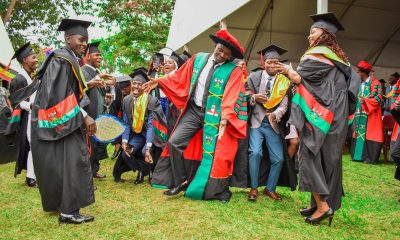
 General2 weeks ago
General2 weeks agoDiploma/Degree Holders Scheme – Self Sponsorship Admission Lists 2025/26
